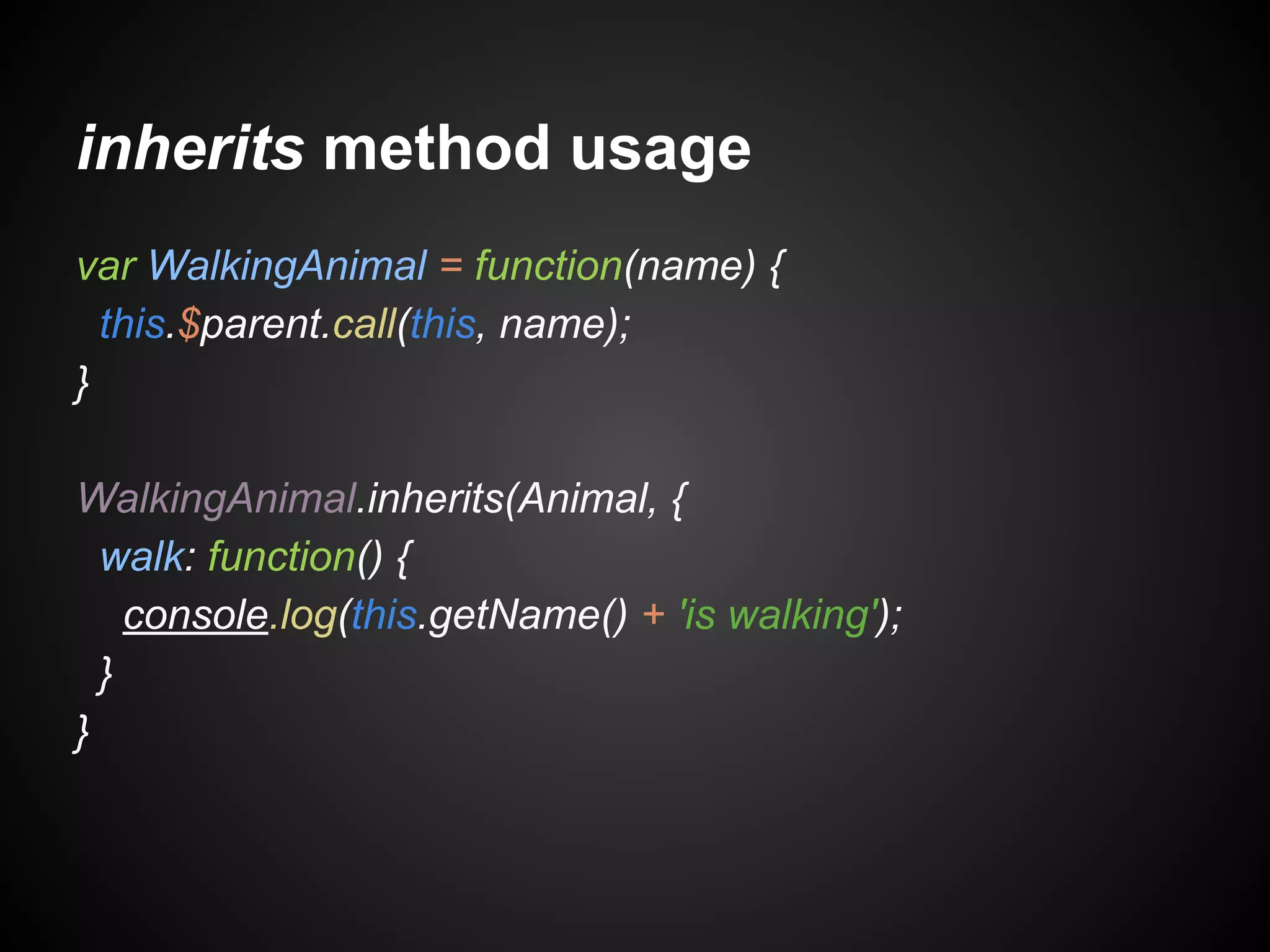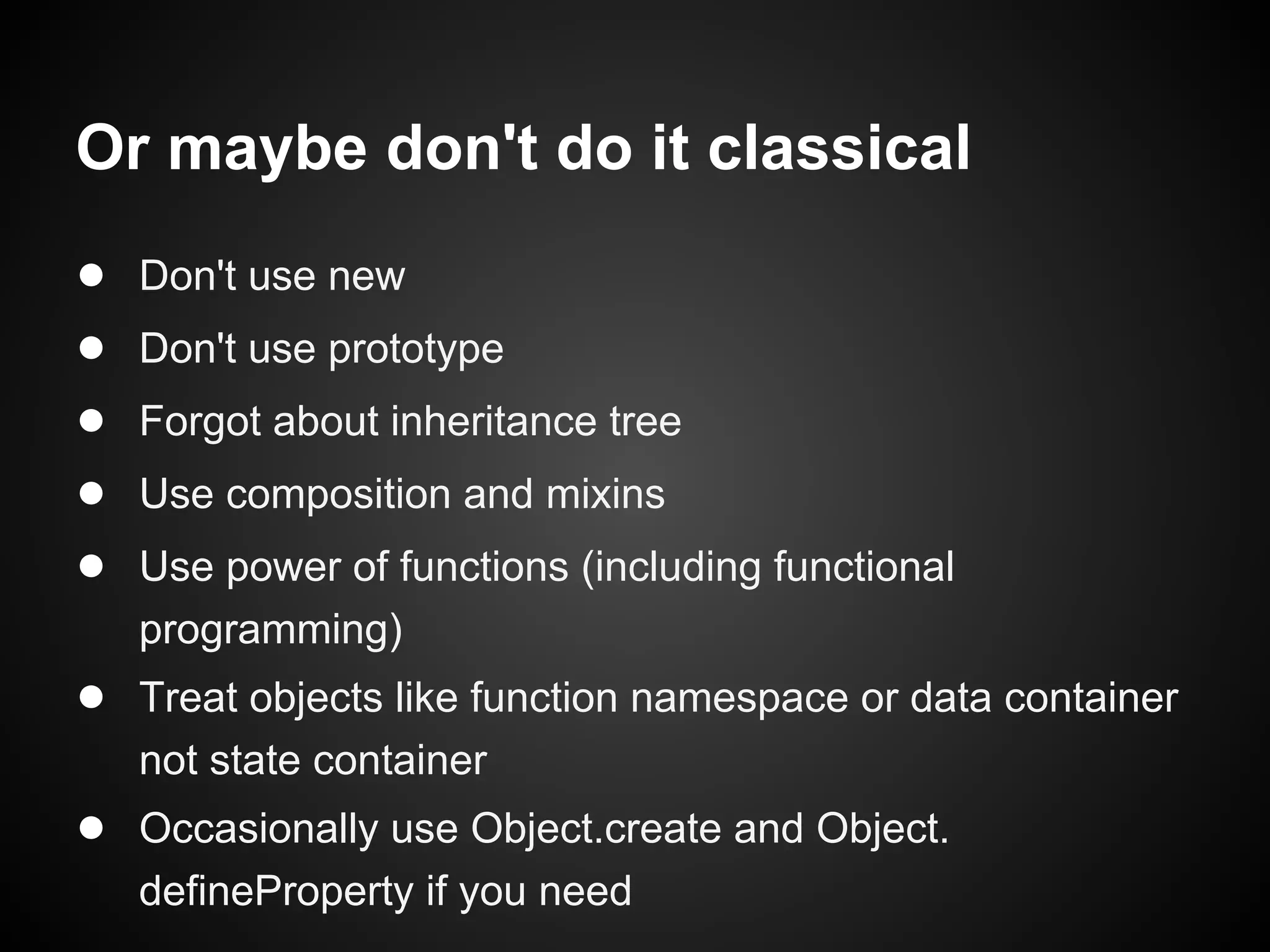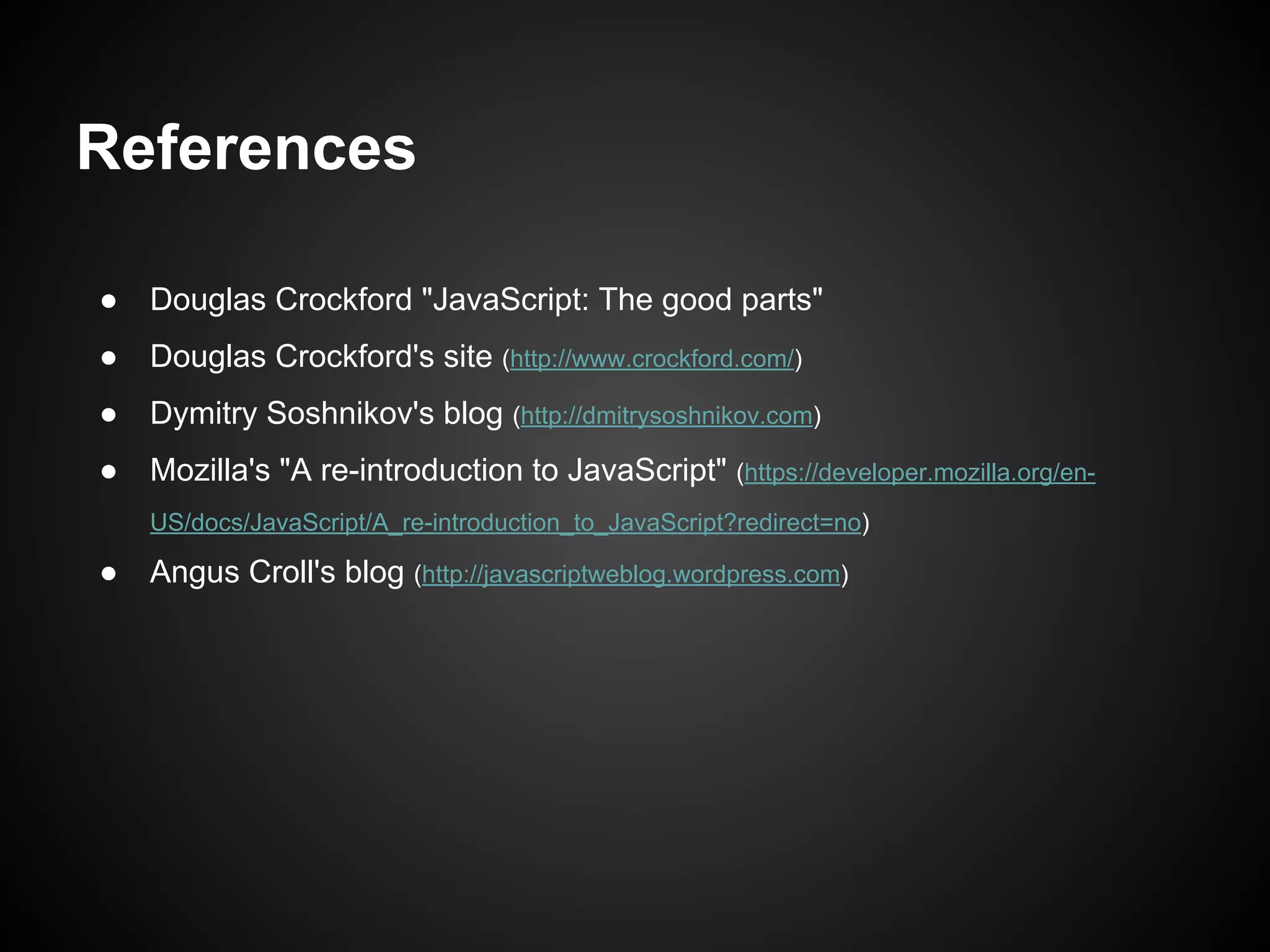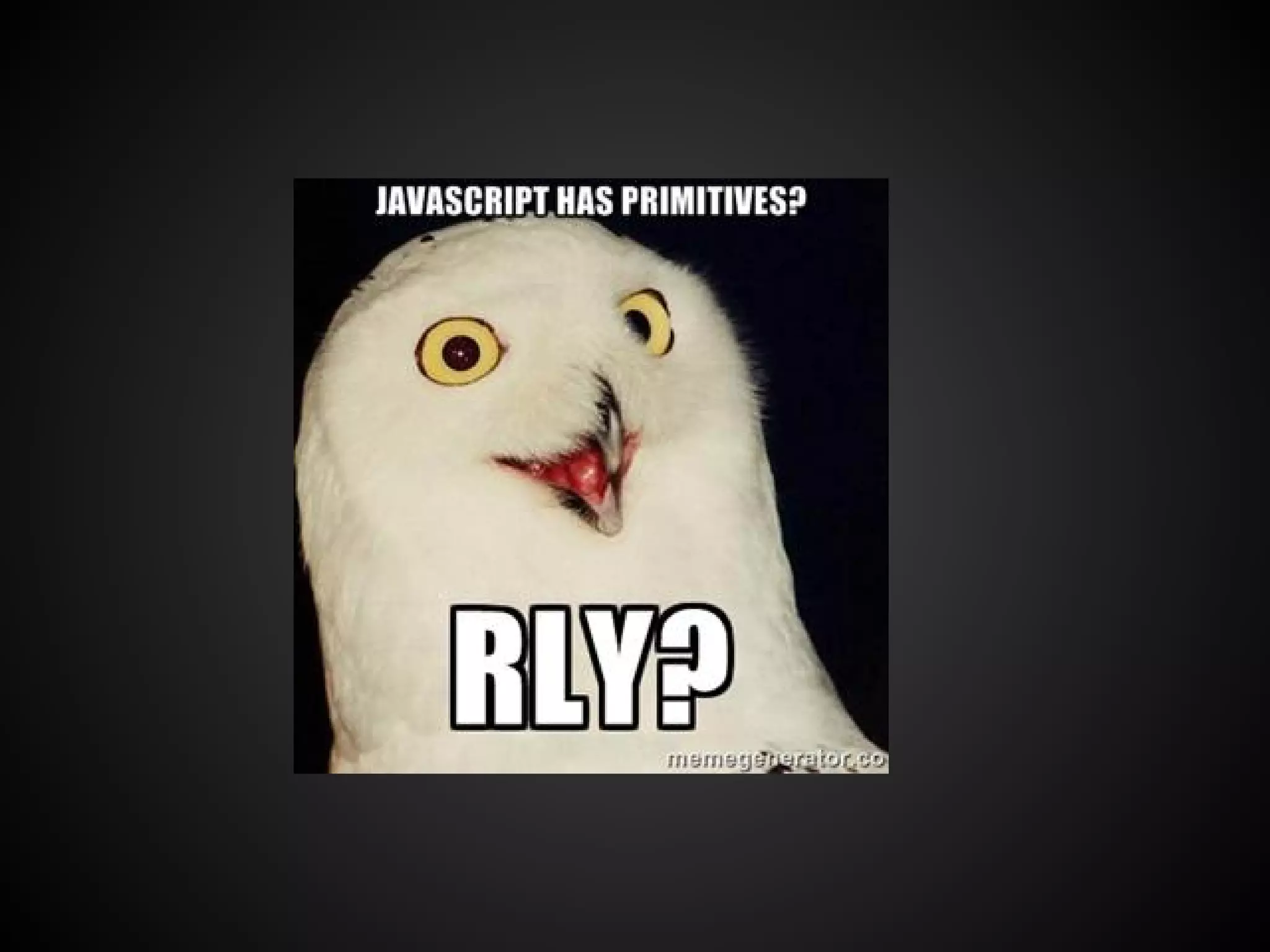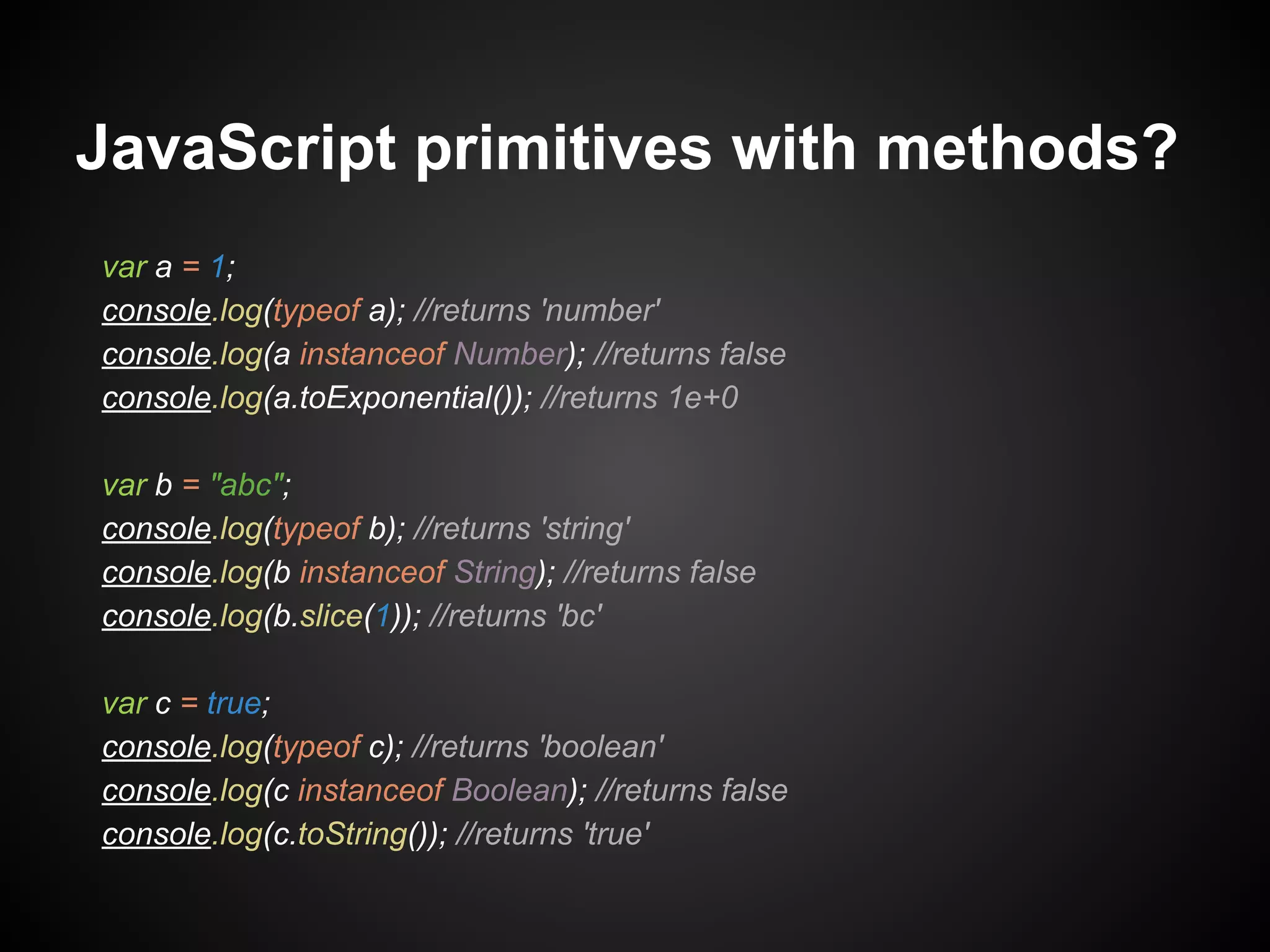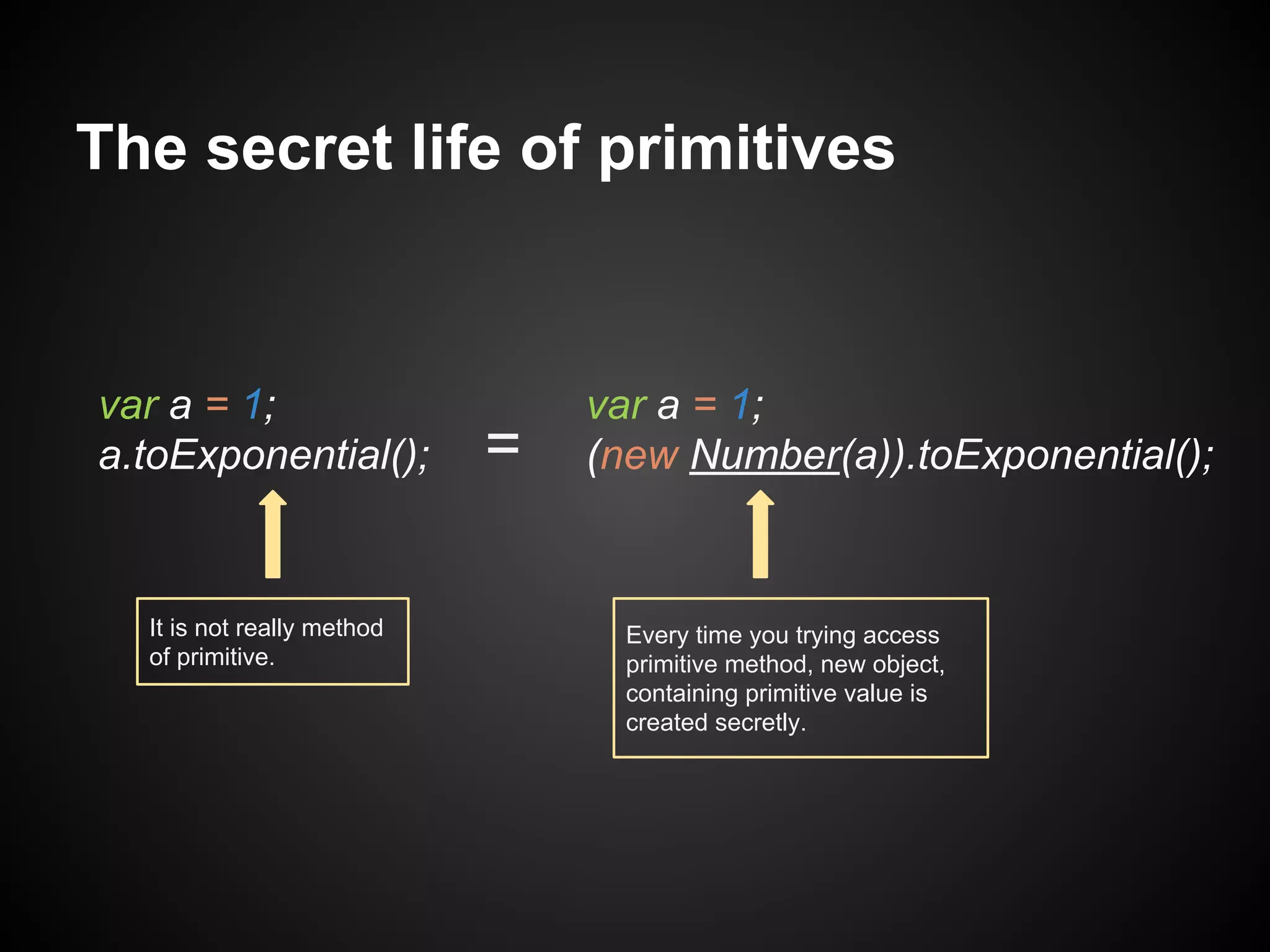This document provides an introduction to JavaScript concepts such as variables, functions, objects, scopes, and inheritance. Some key points covered include:
- JavaScript variables can be declared with or without the var keyword, and variable types are dynamically determined.
- Functions are objects that can have properties and methods, create closures, and be stored in variables.
- Objects are collections of key-value pairs that use prototypical inheritance rather than classes. Constructors are functions used to create objects.
- Scope is determined lexically and created by functions, allowing private variables through closures. This and prototypes are used to implement inheritance and encapsulation.
- Primitives appear to have methods but actually
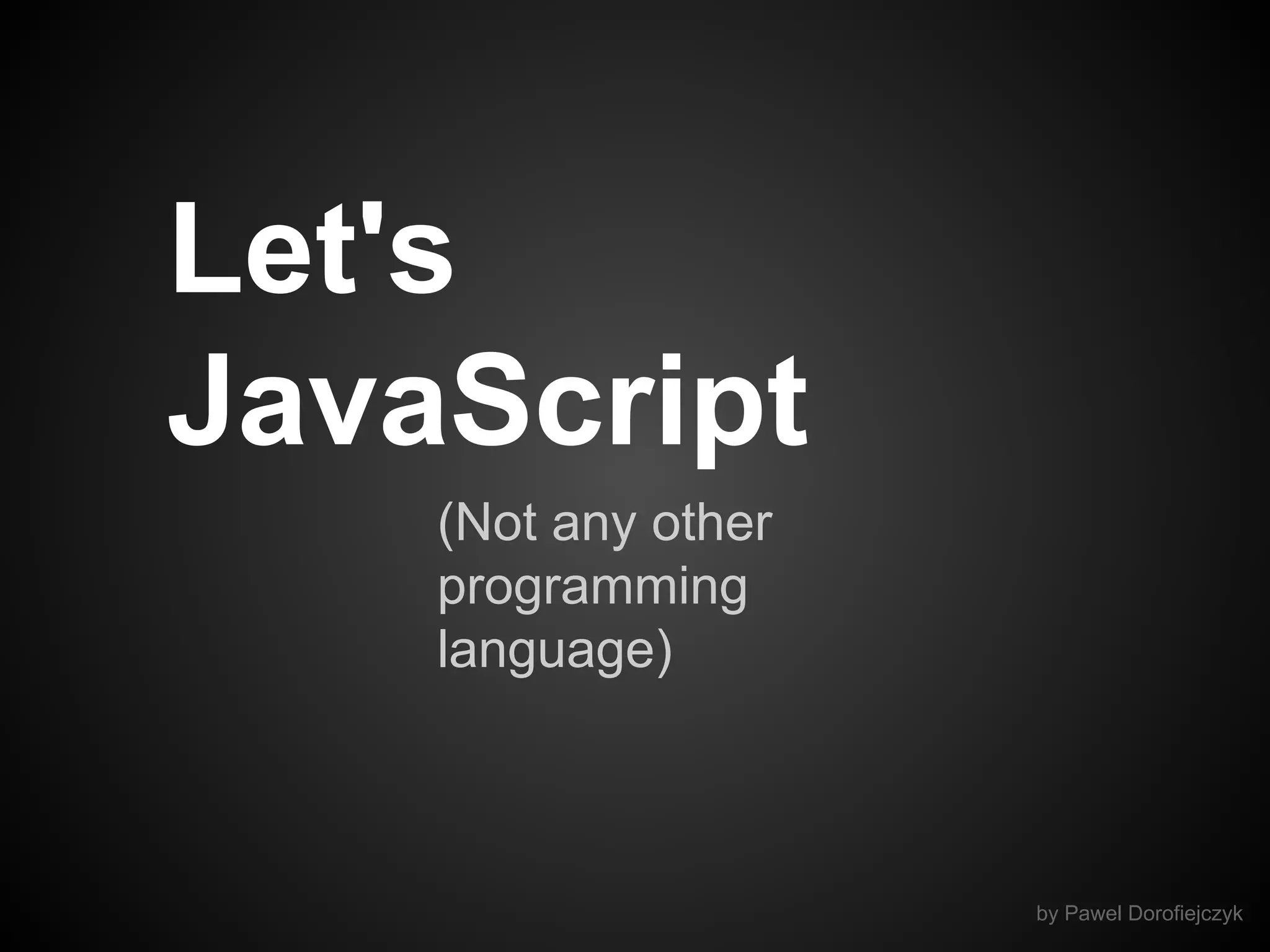
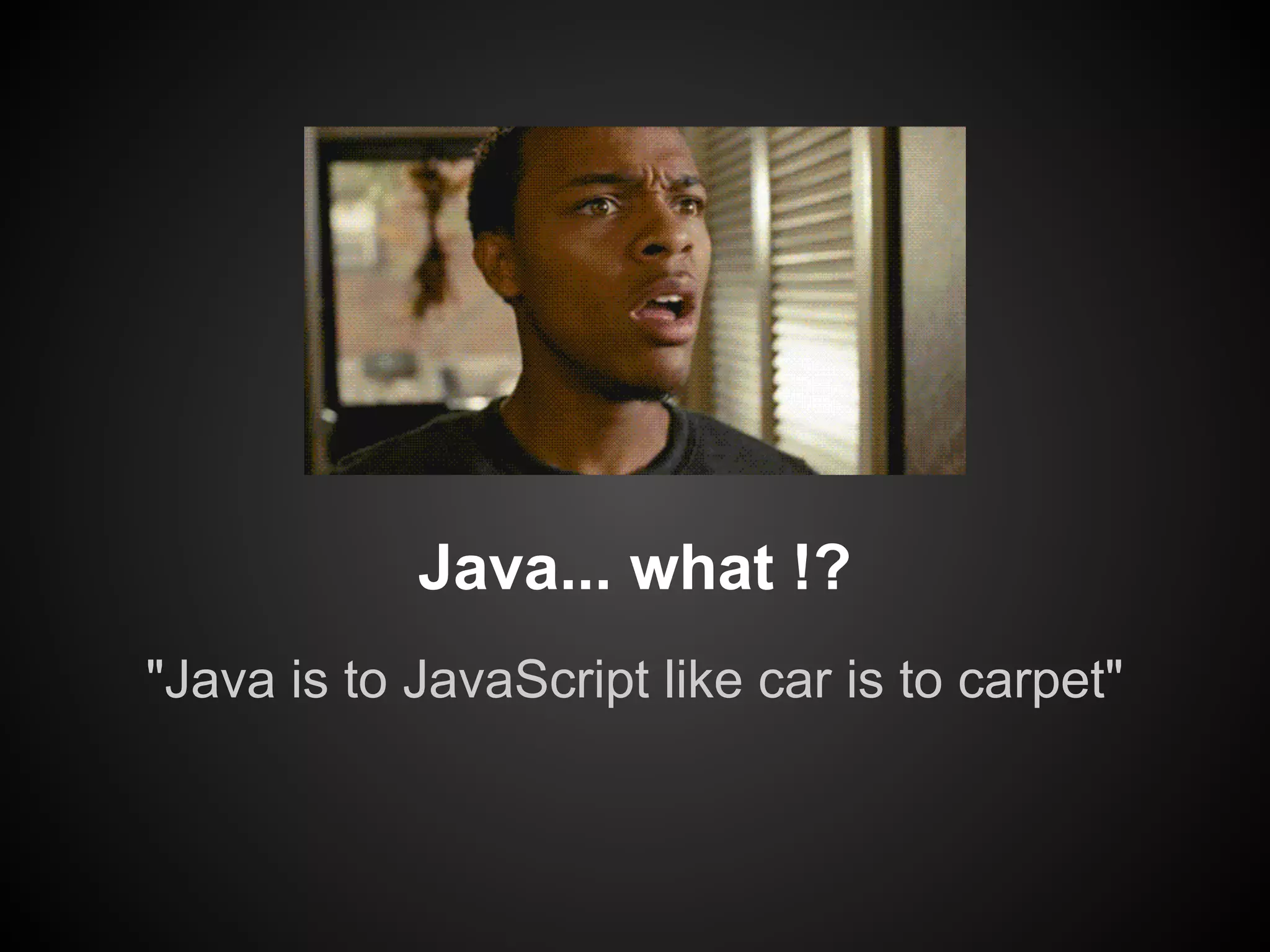
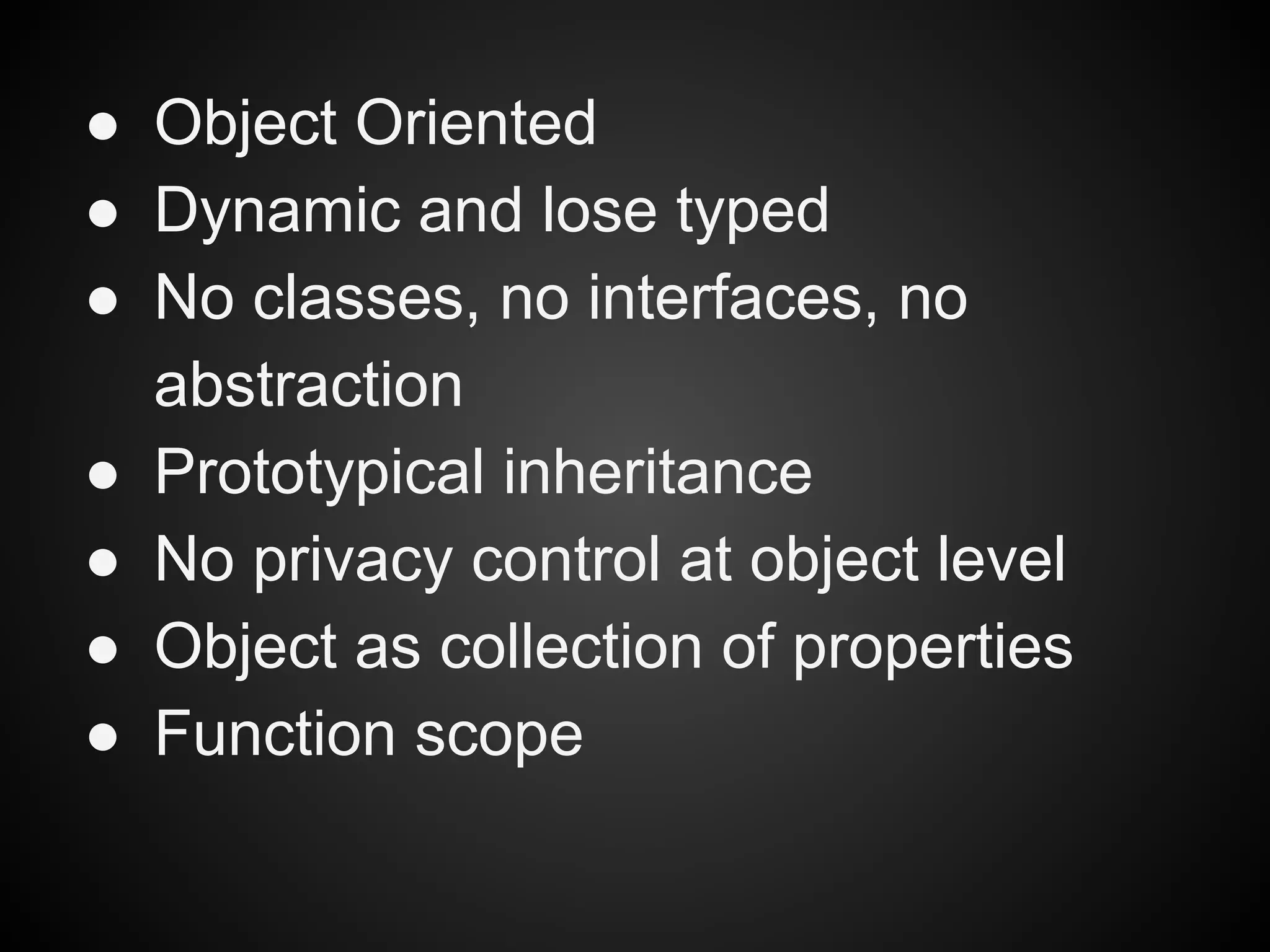



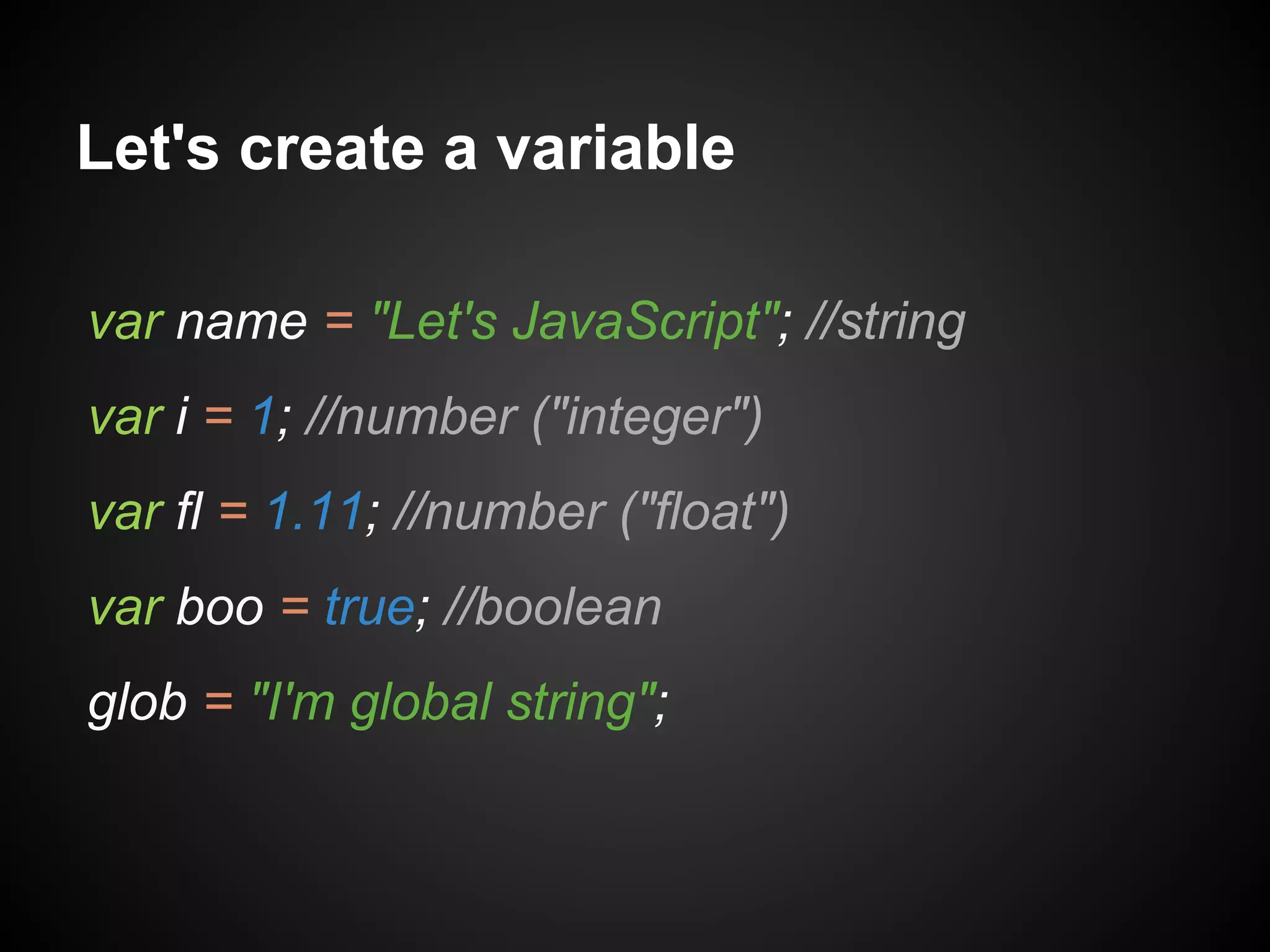
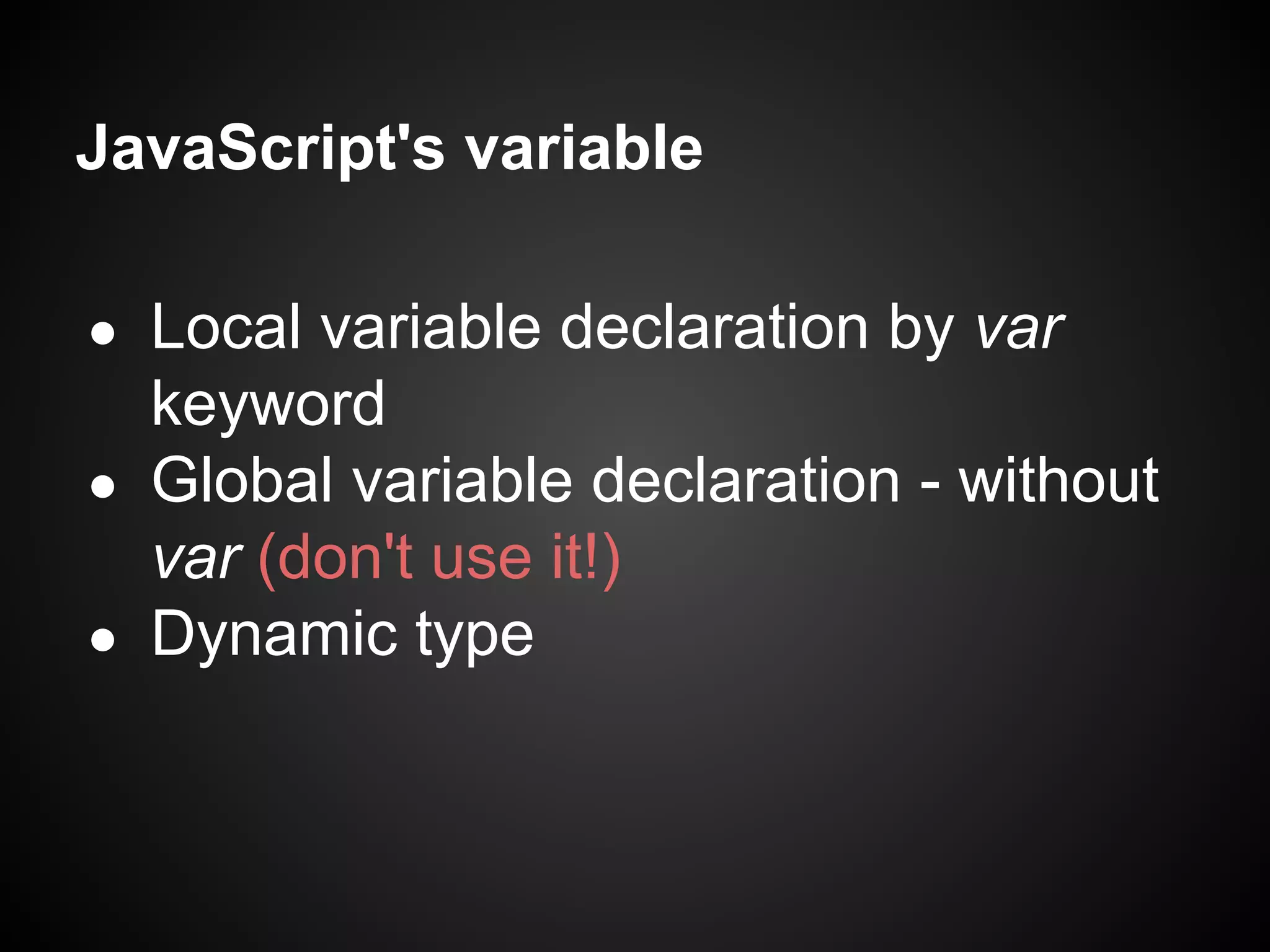

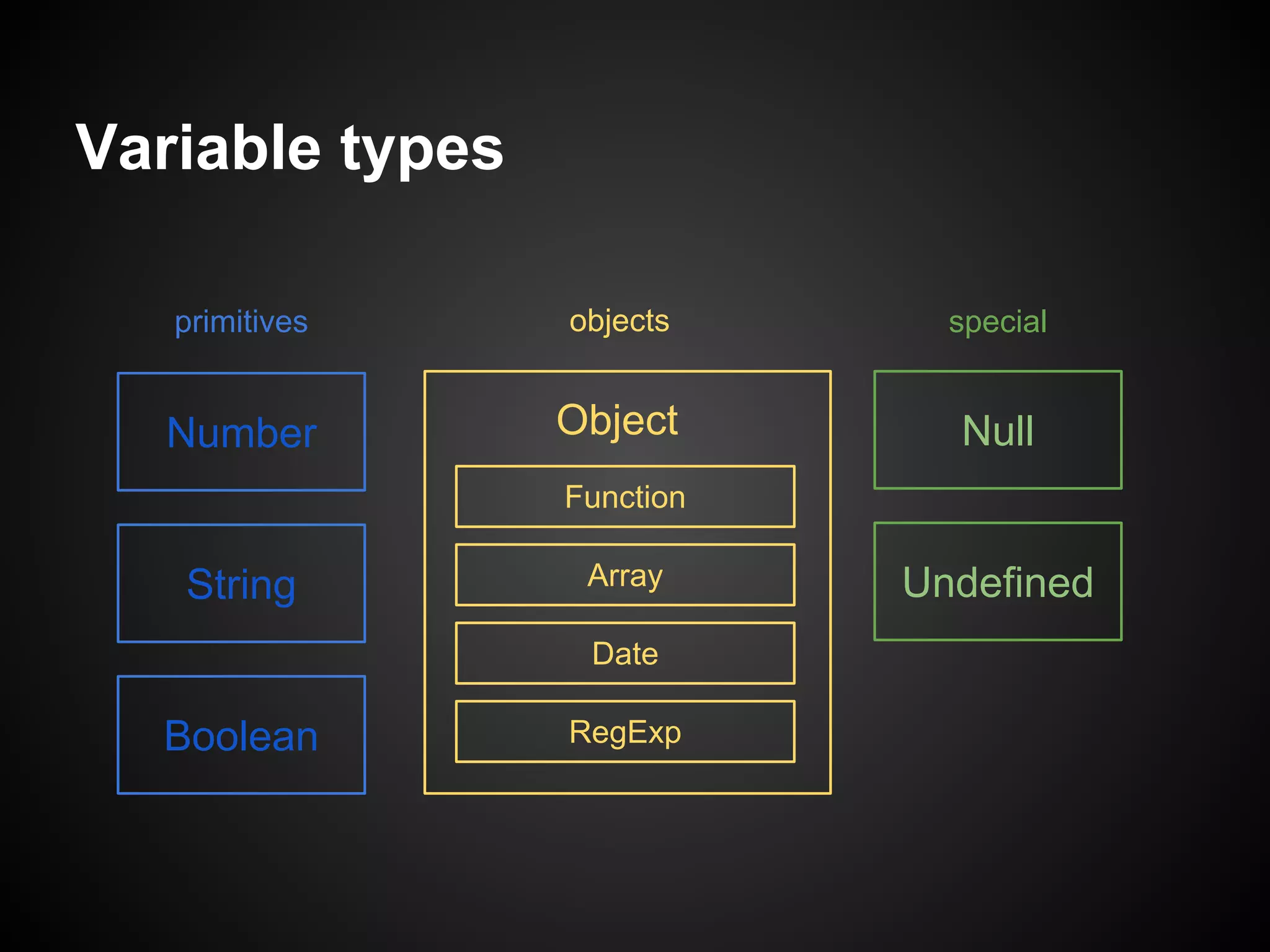
![typeof - the crap?
typeof "string var"; //returns "string";
typeof 1; //returns "number";
typeof {}; //returns "object";
typeof undefined; //returns "undefined";
typeof function(){}; //returns "function"
But...
typeof []; //returns "object" (!)
typeof null; //returns "object" (!!!)
typeof NaN; // returns "number" ;)](https://image.slidesharecdn.com/letsjavascript1-131104072144-phpapp01/75/Let-s-JavaScript-11-2048.jpg)

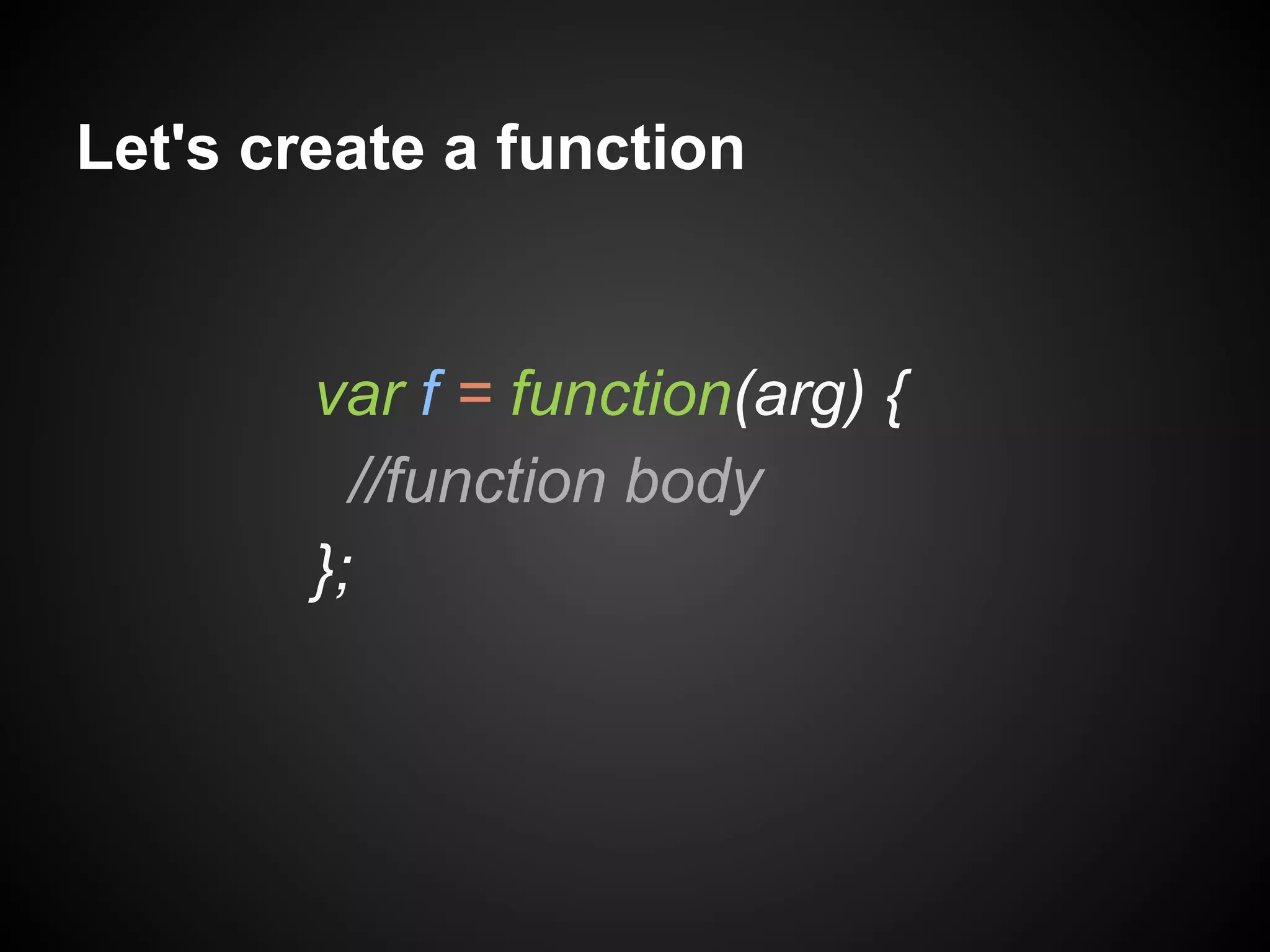
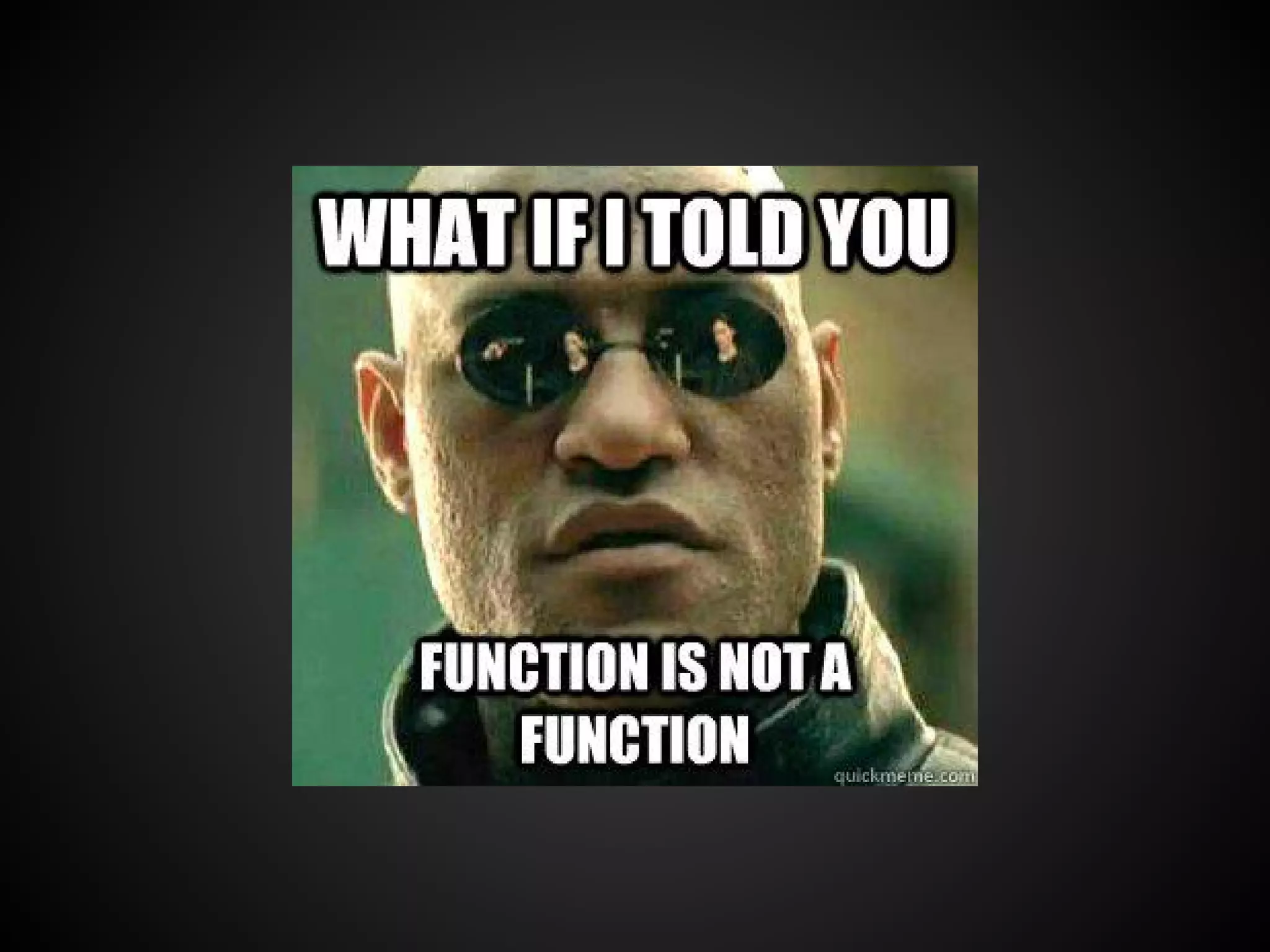
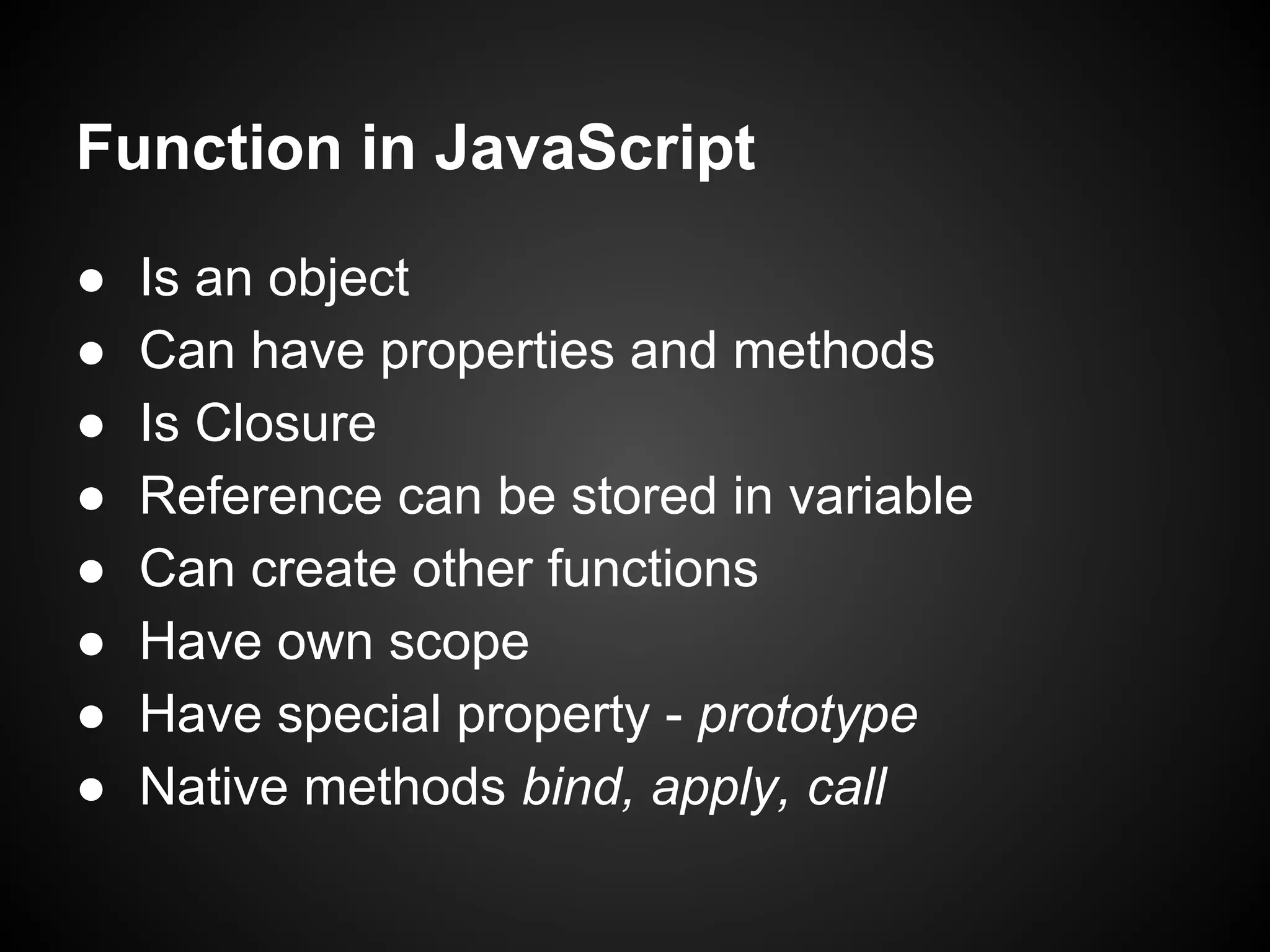
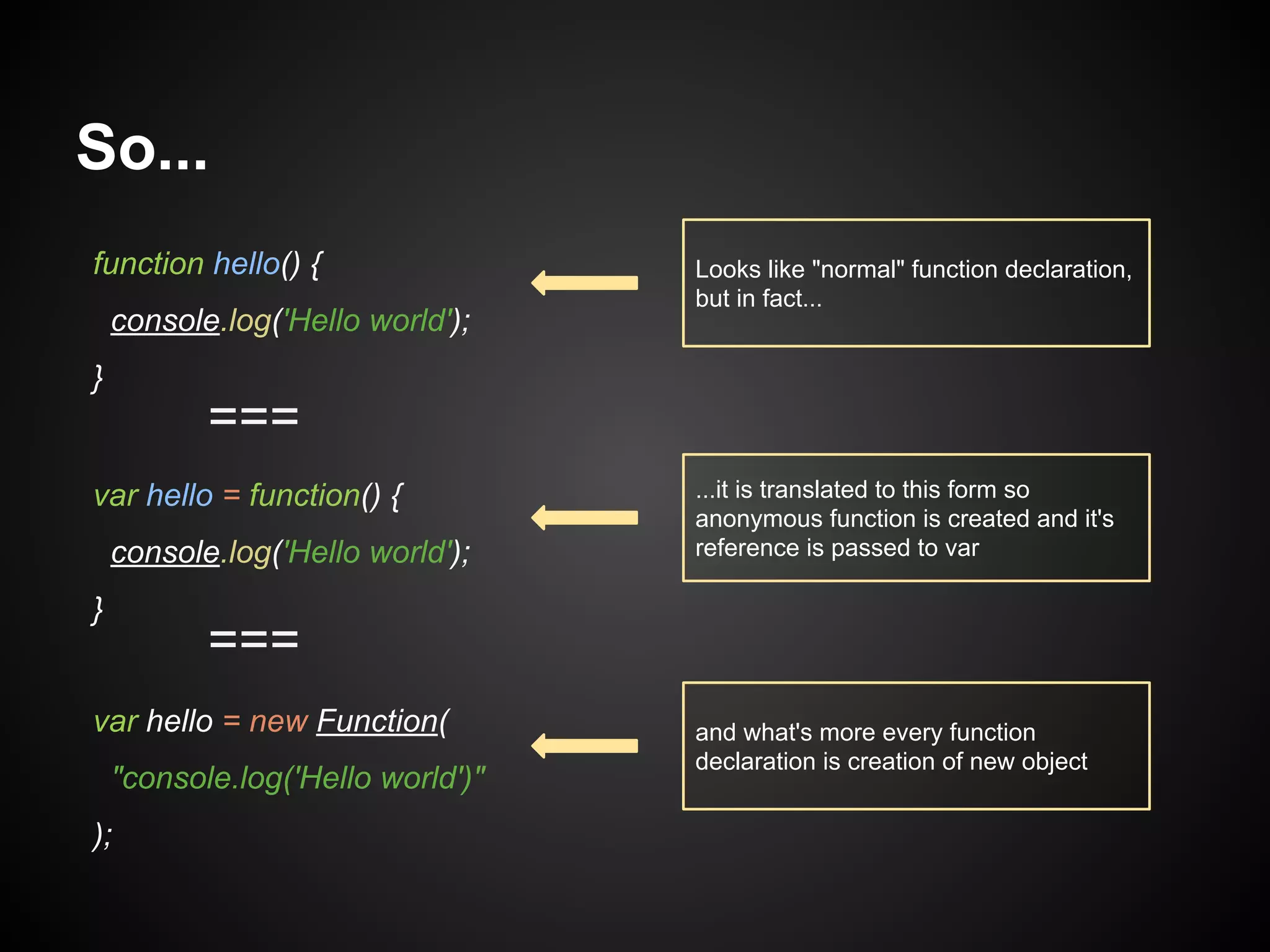
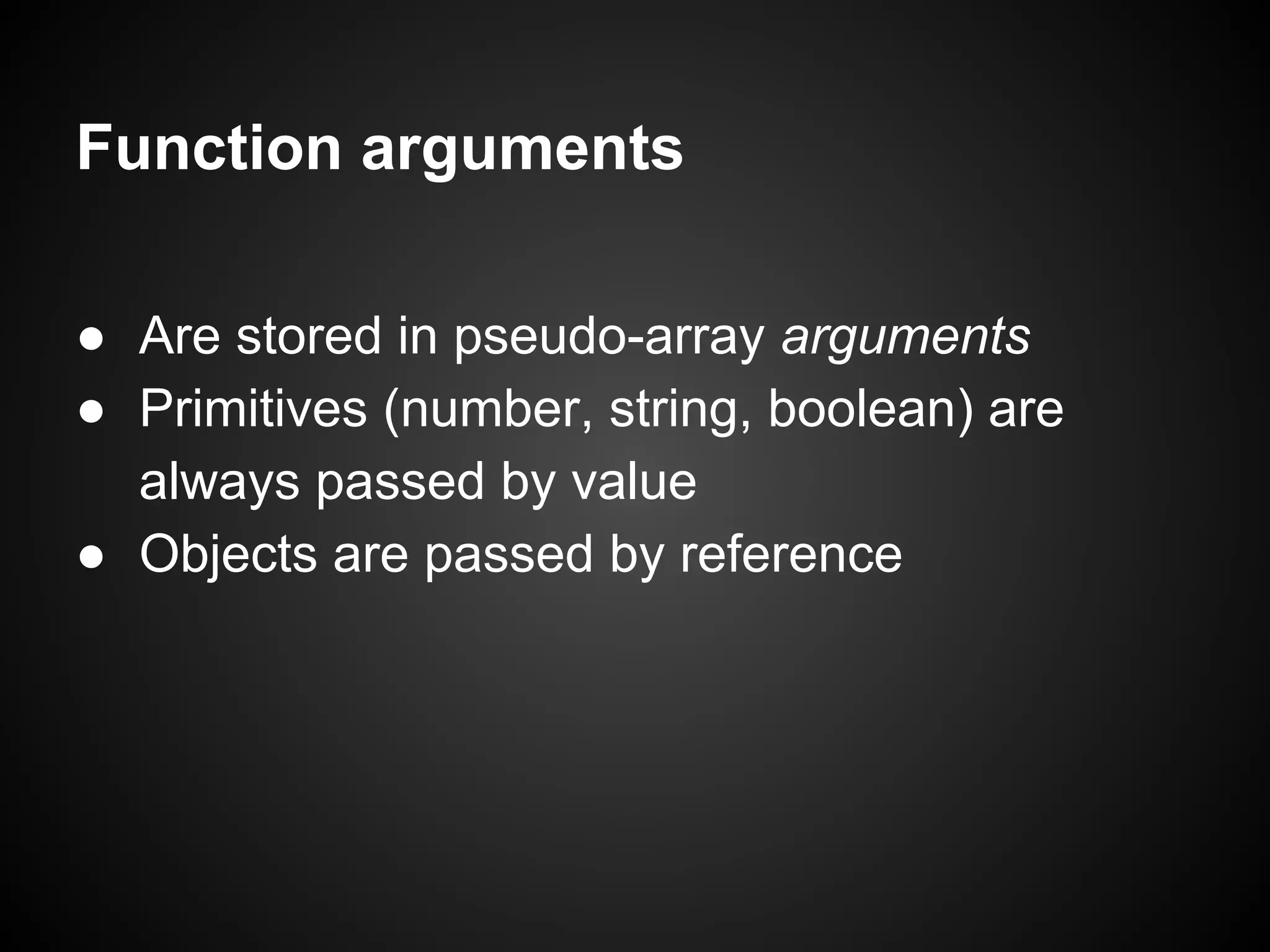
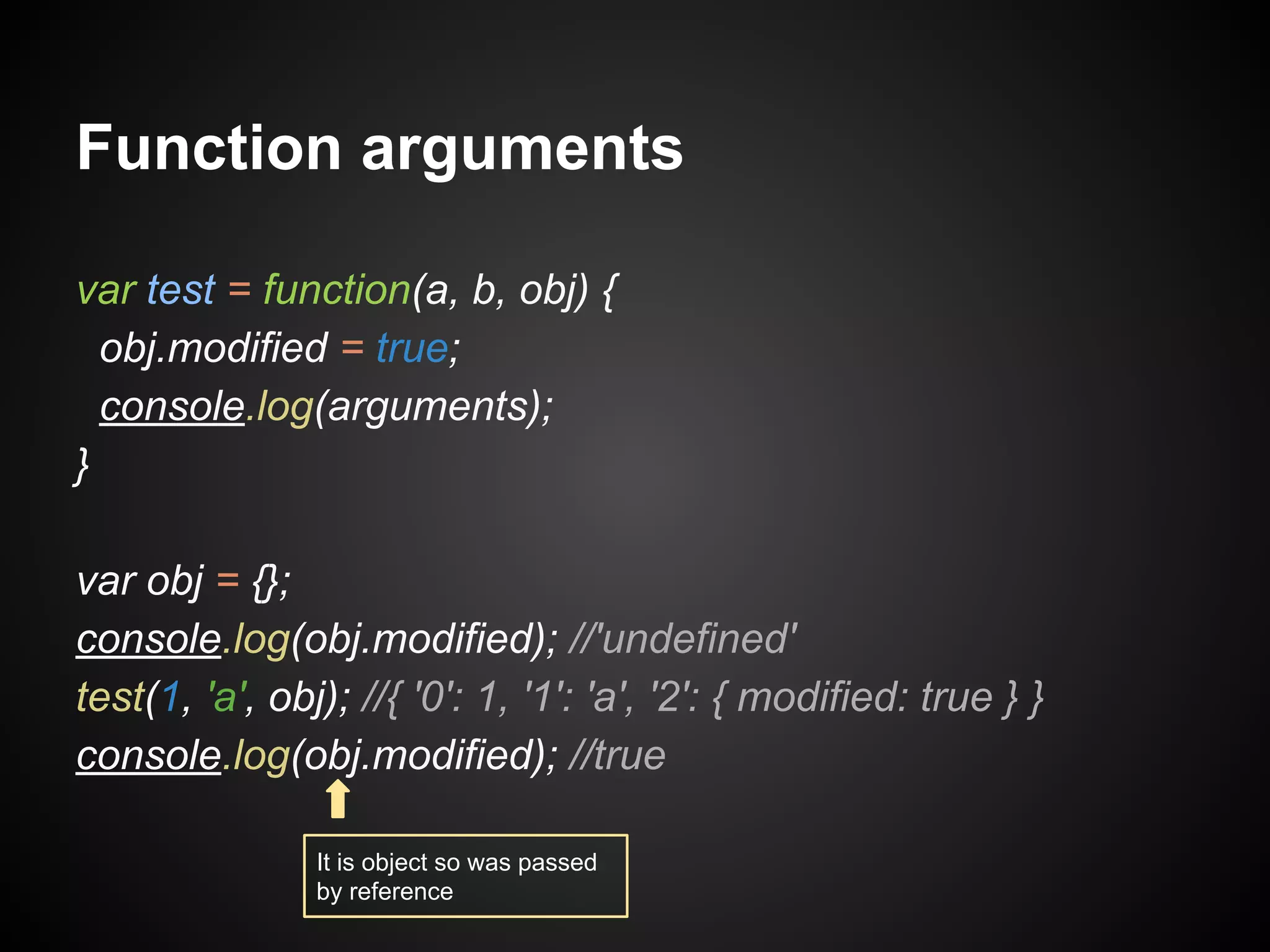
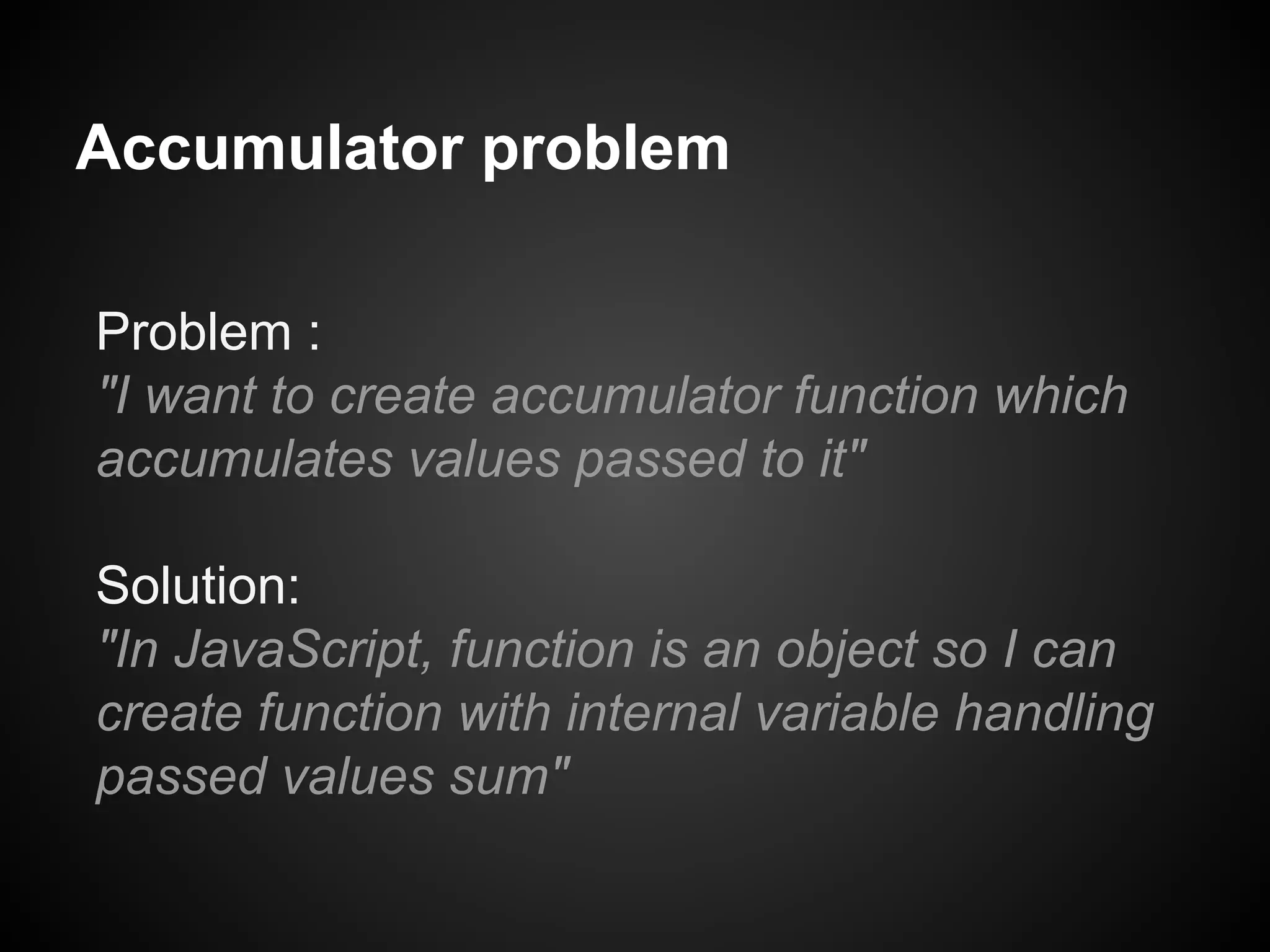
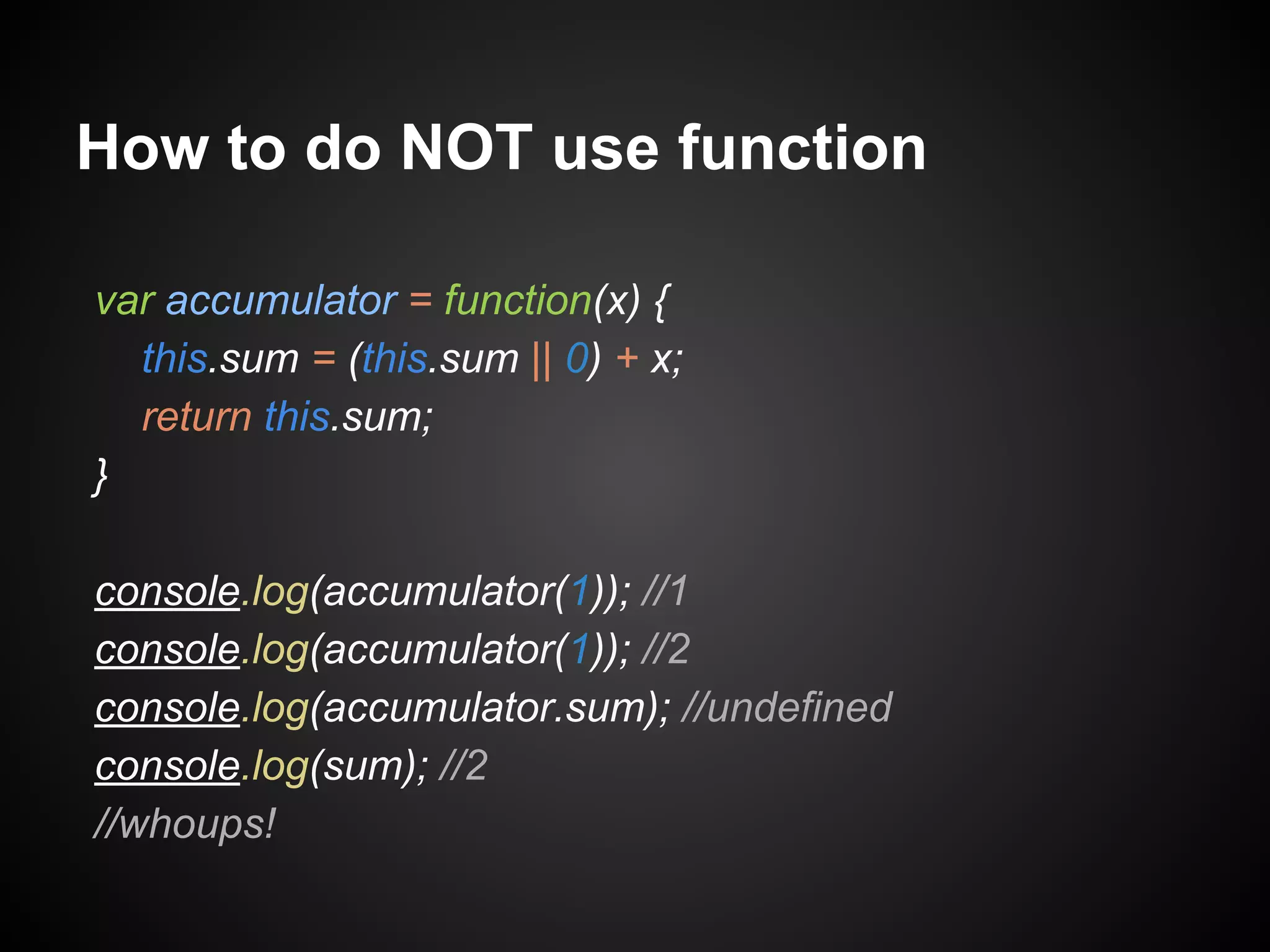

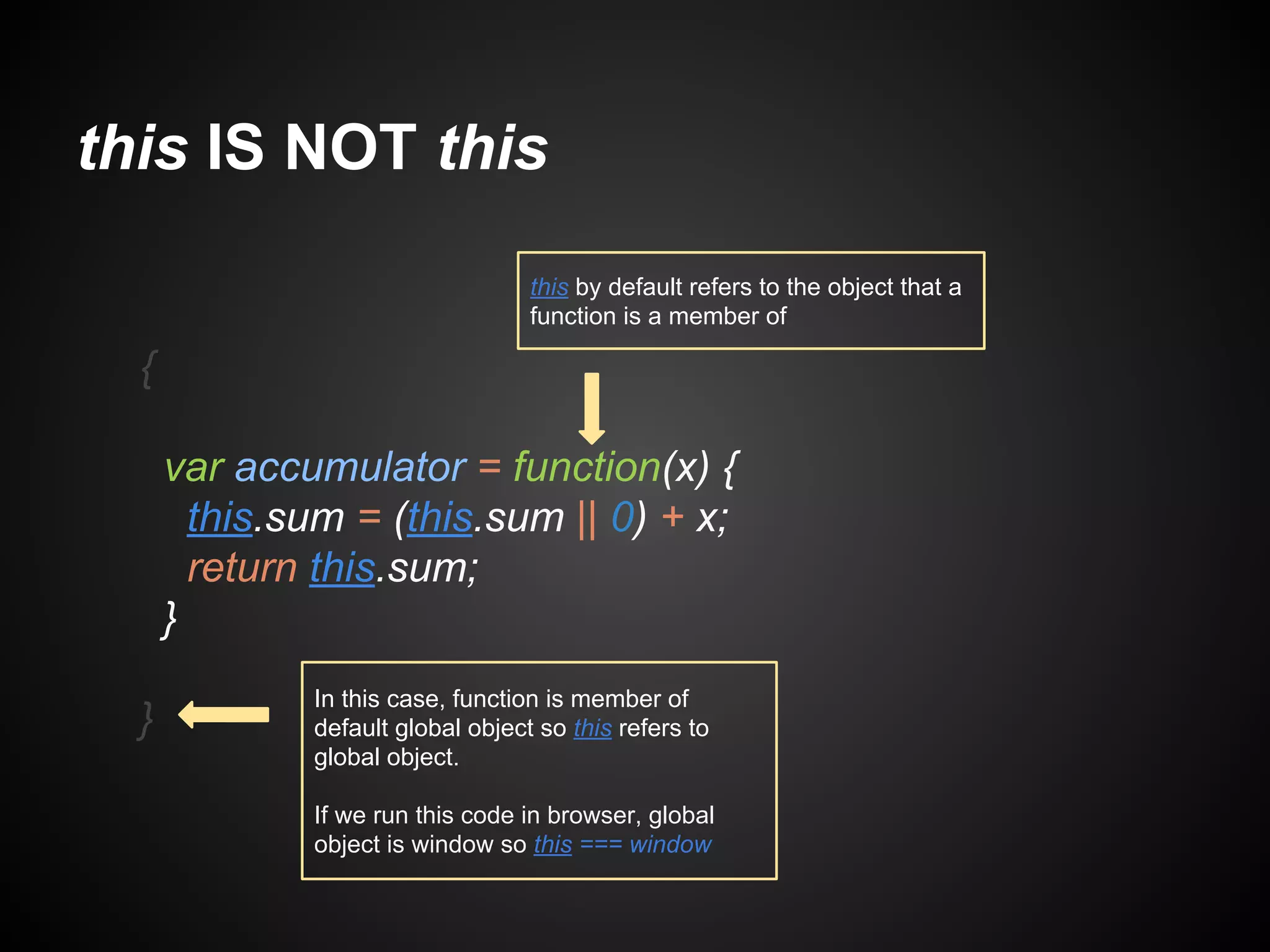
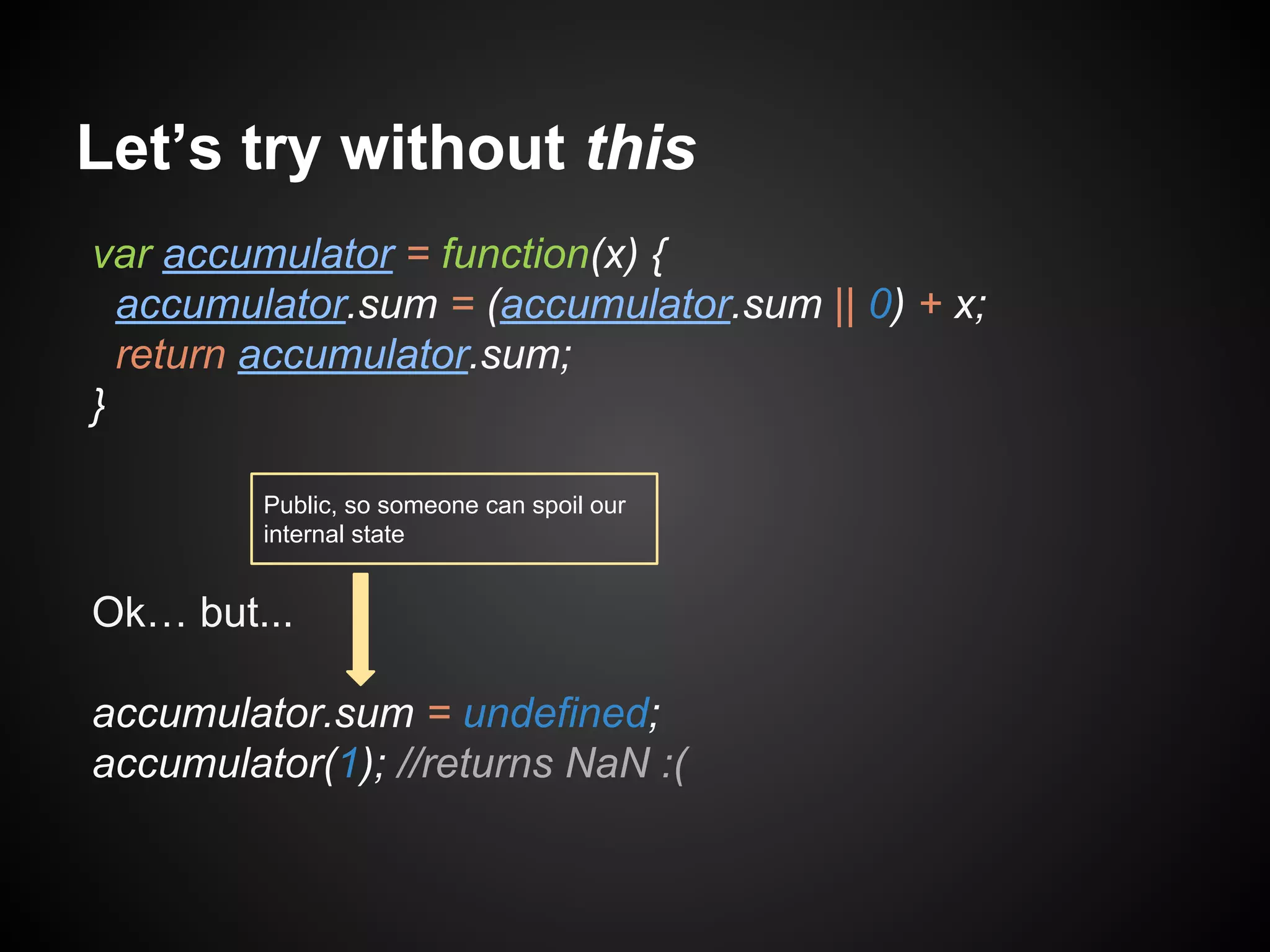

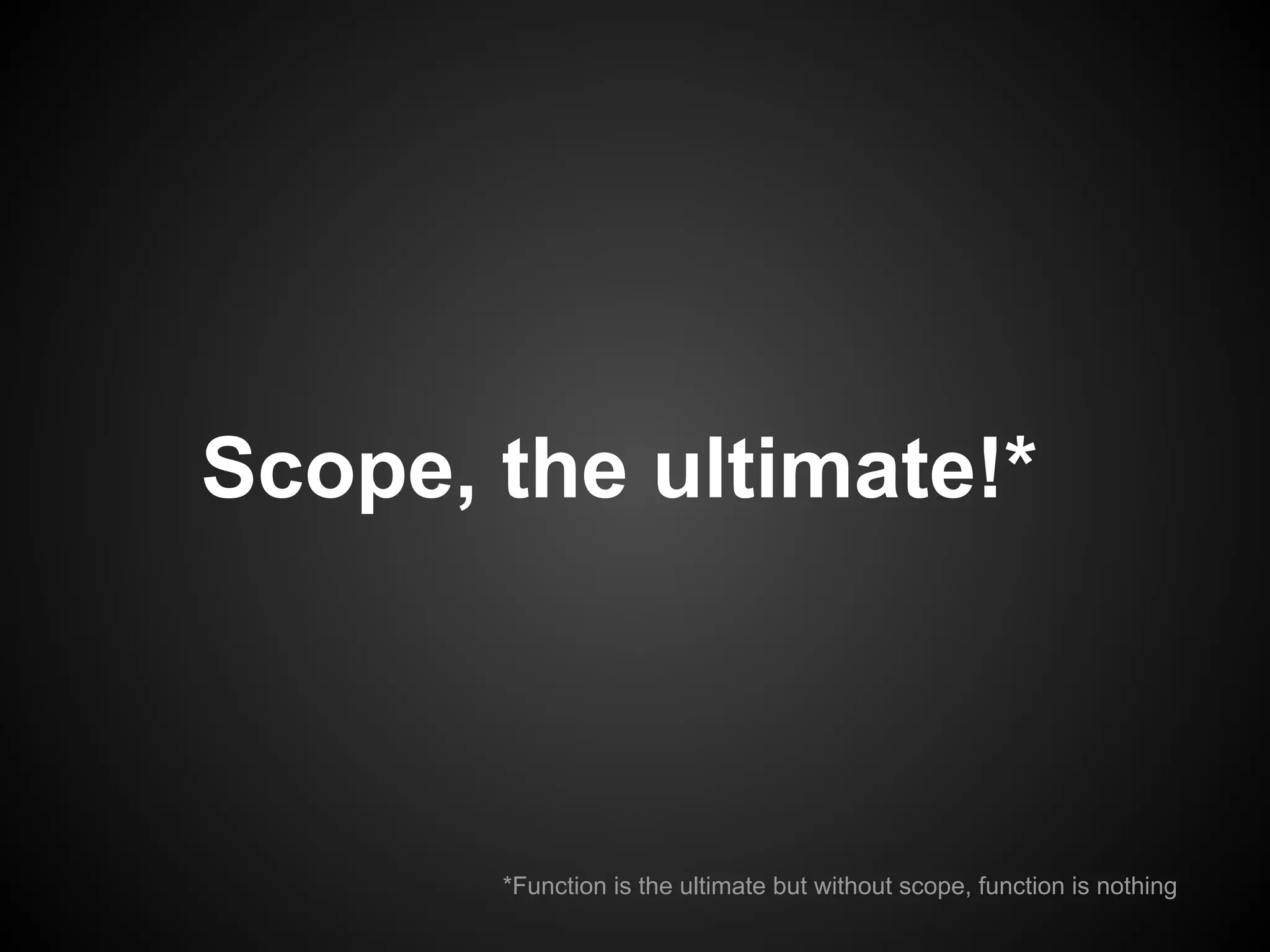
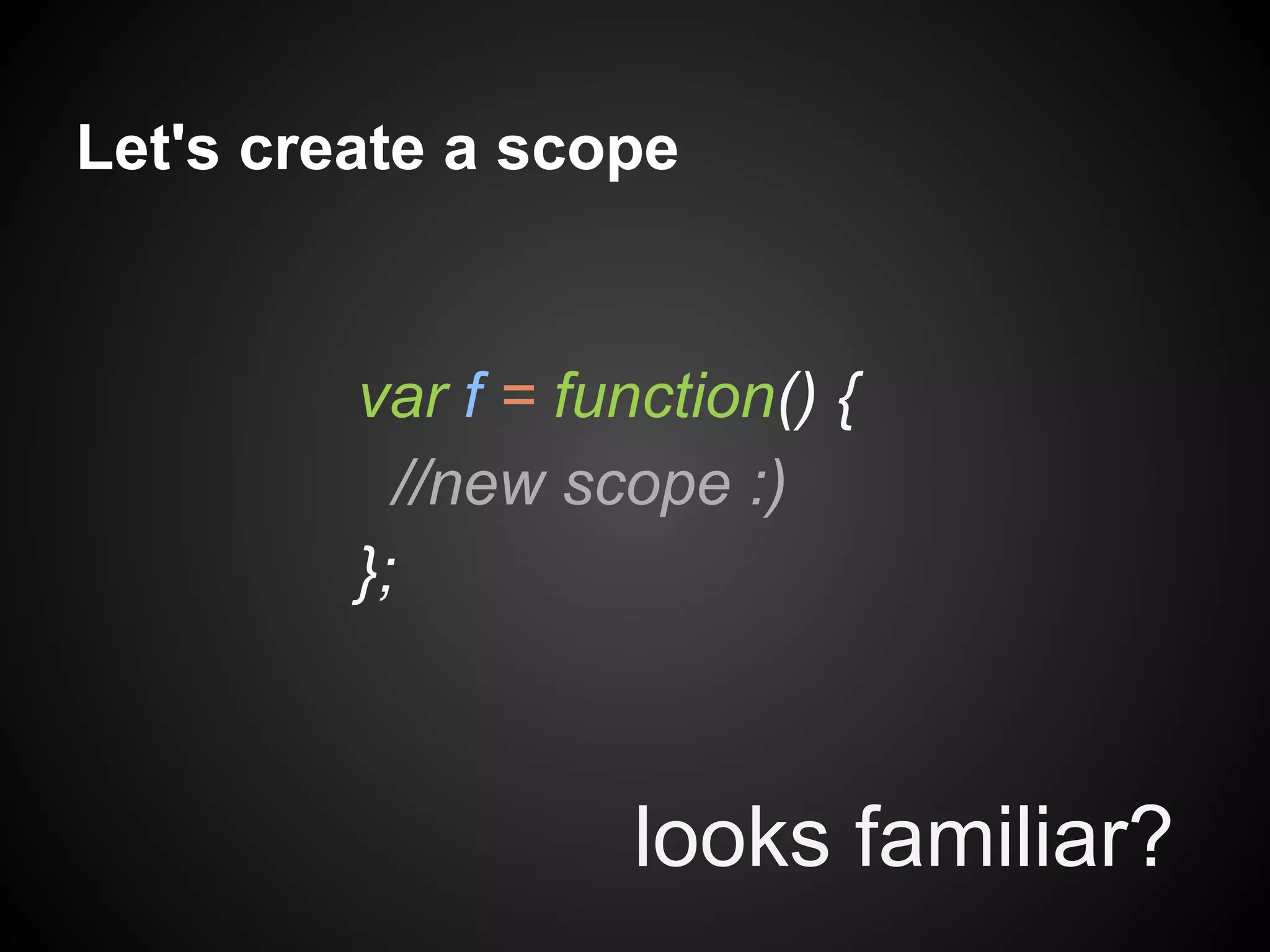
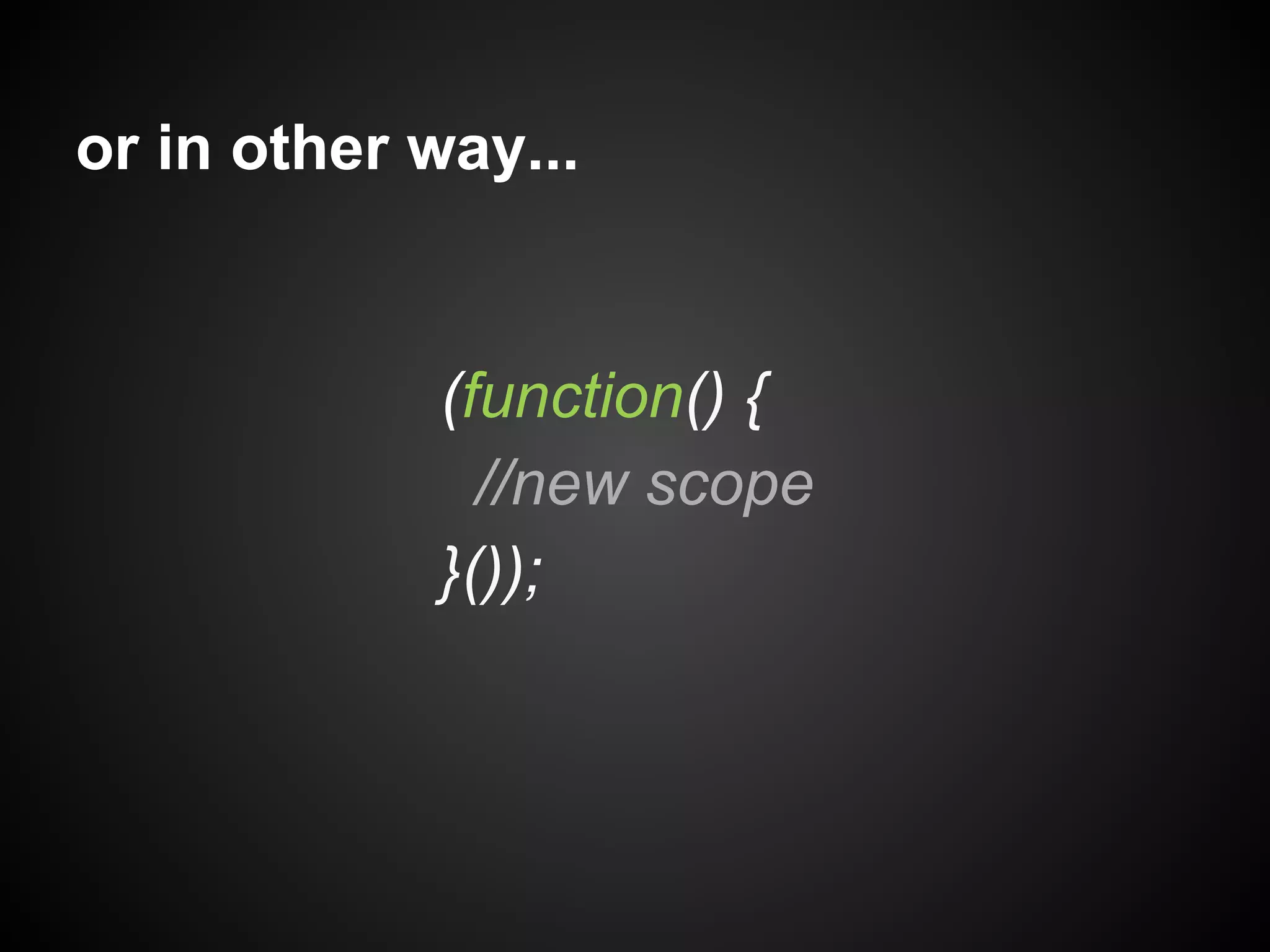
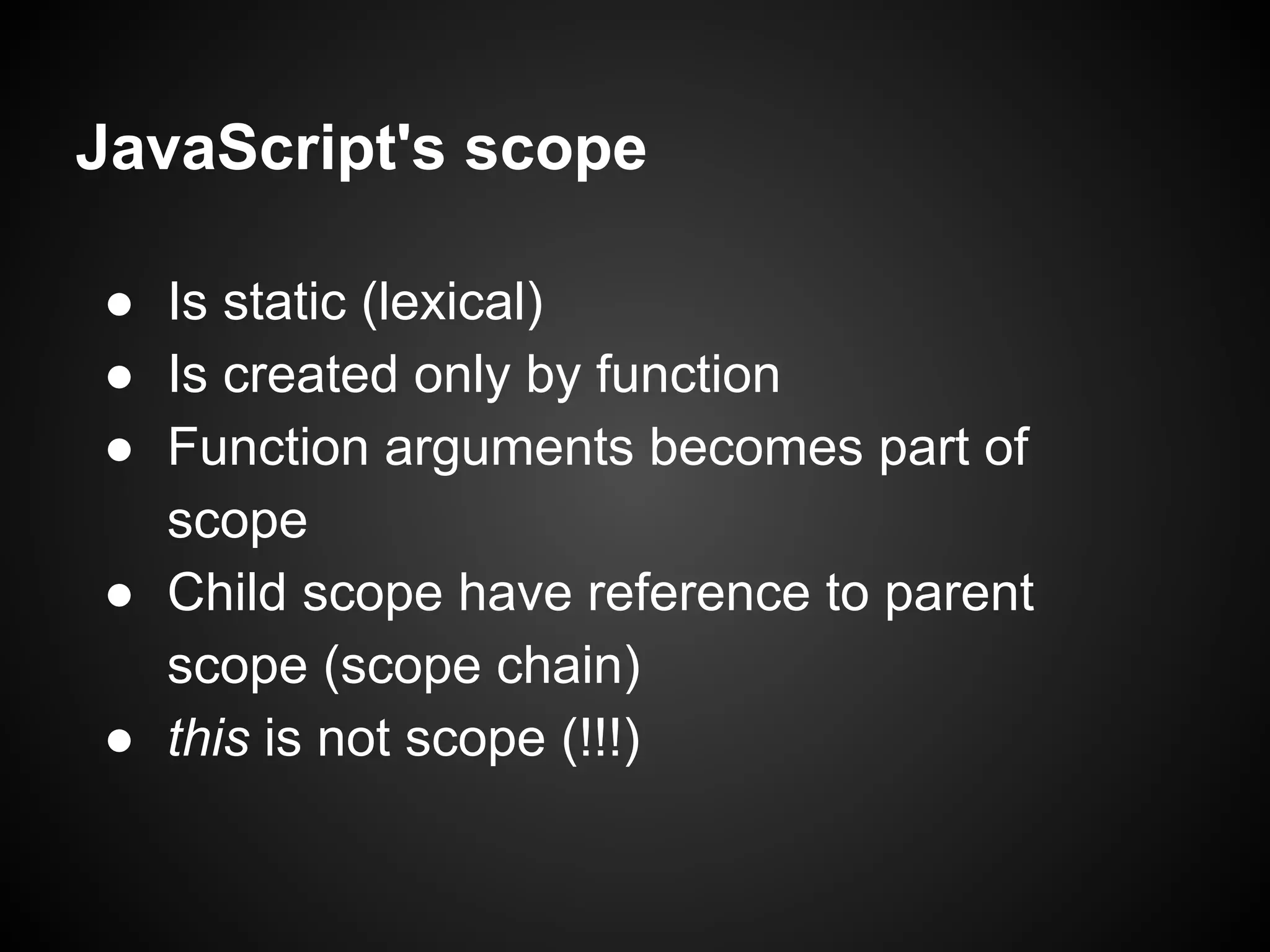
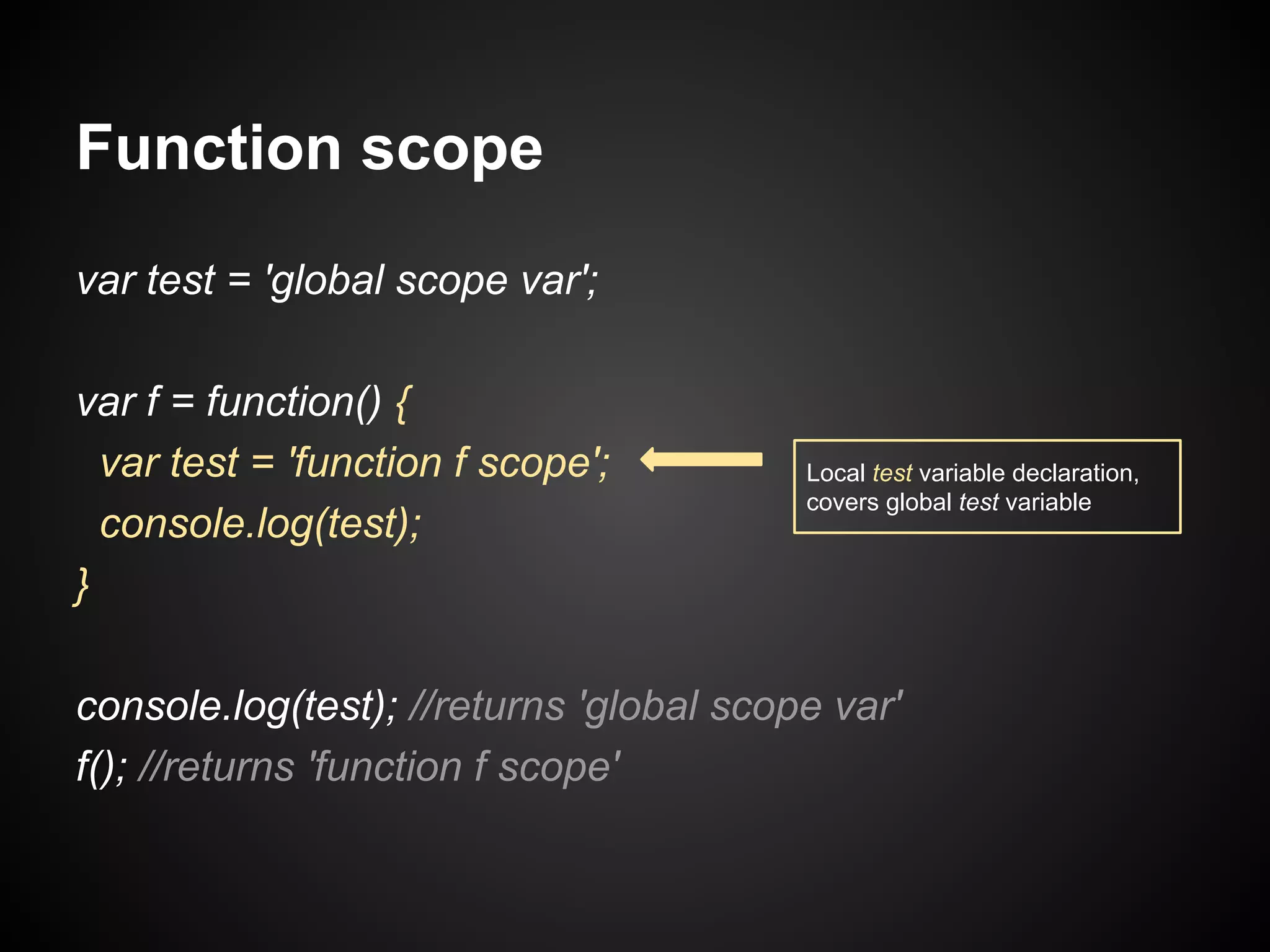
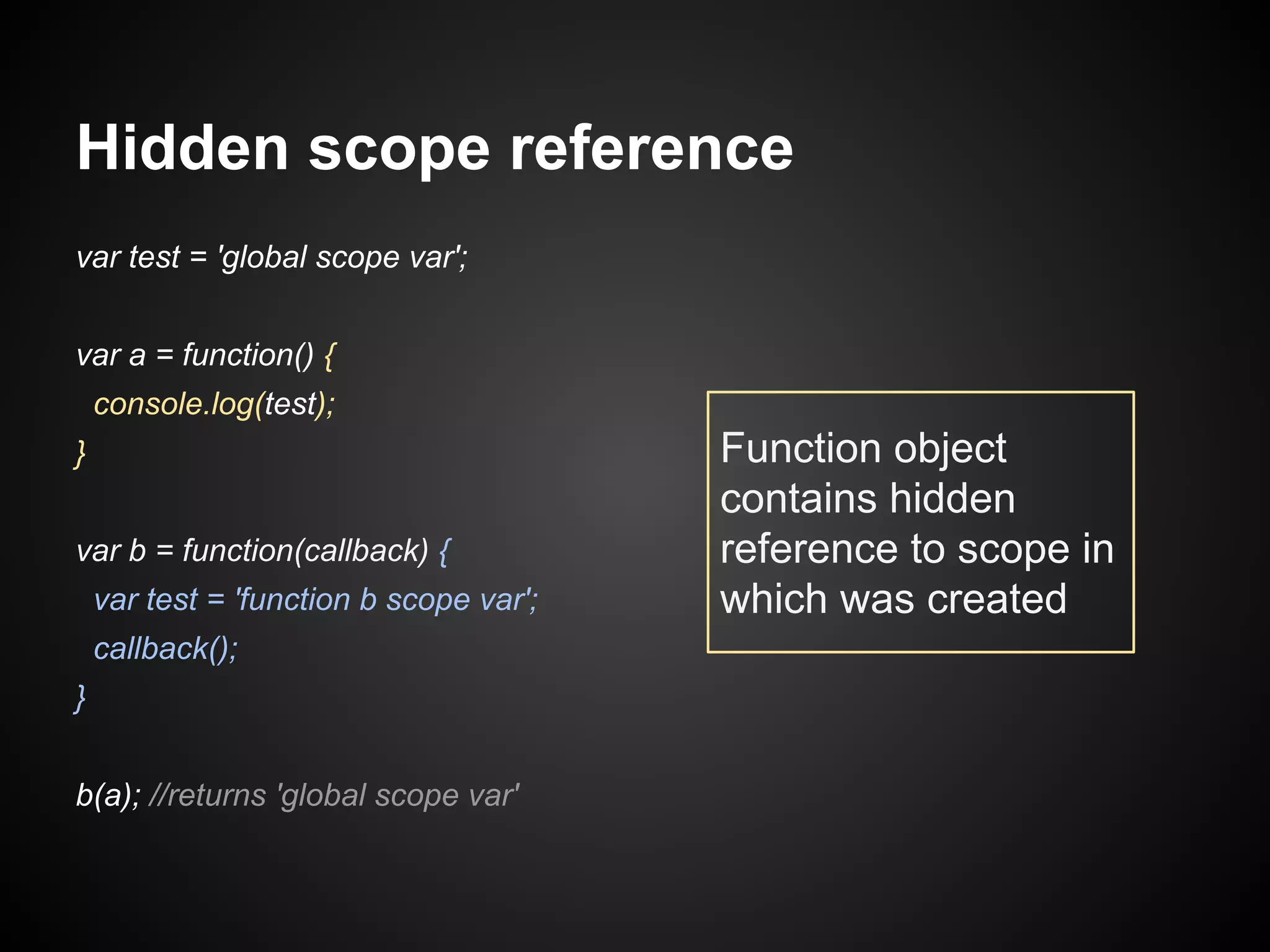
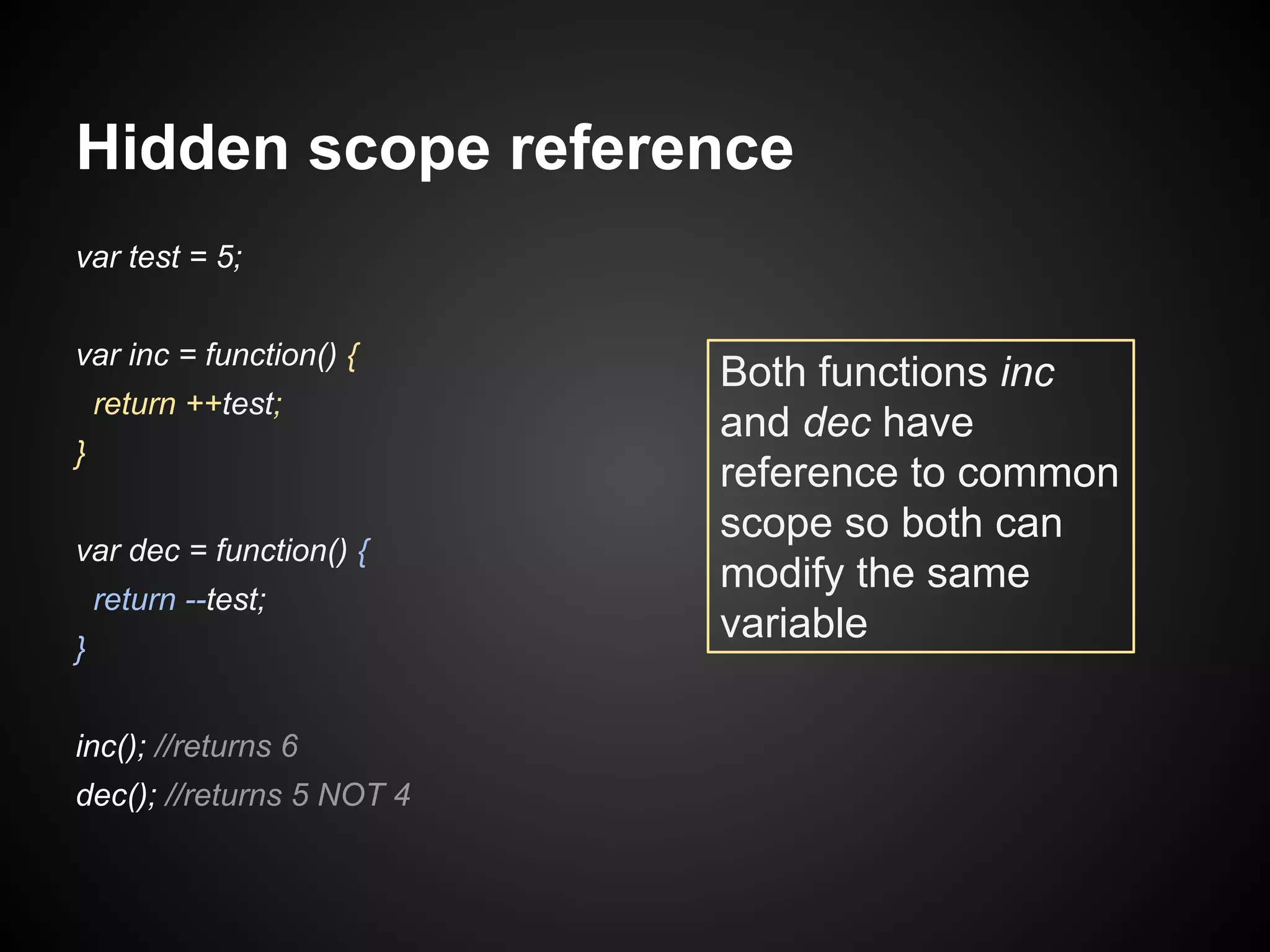
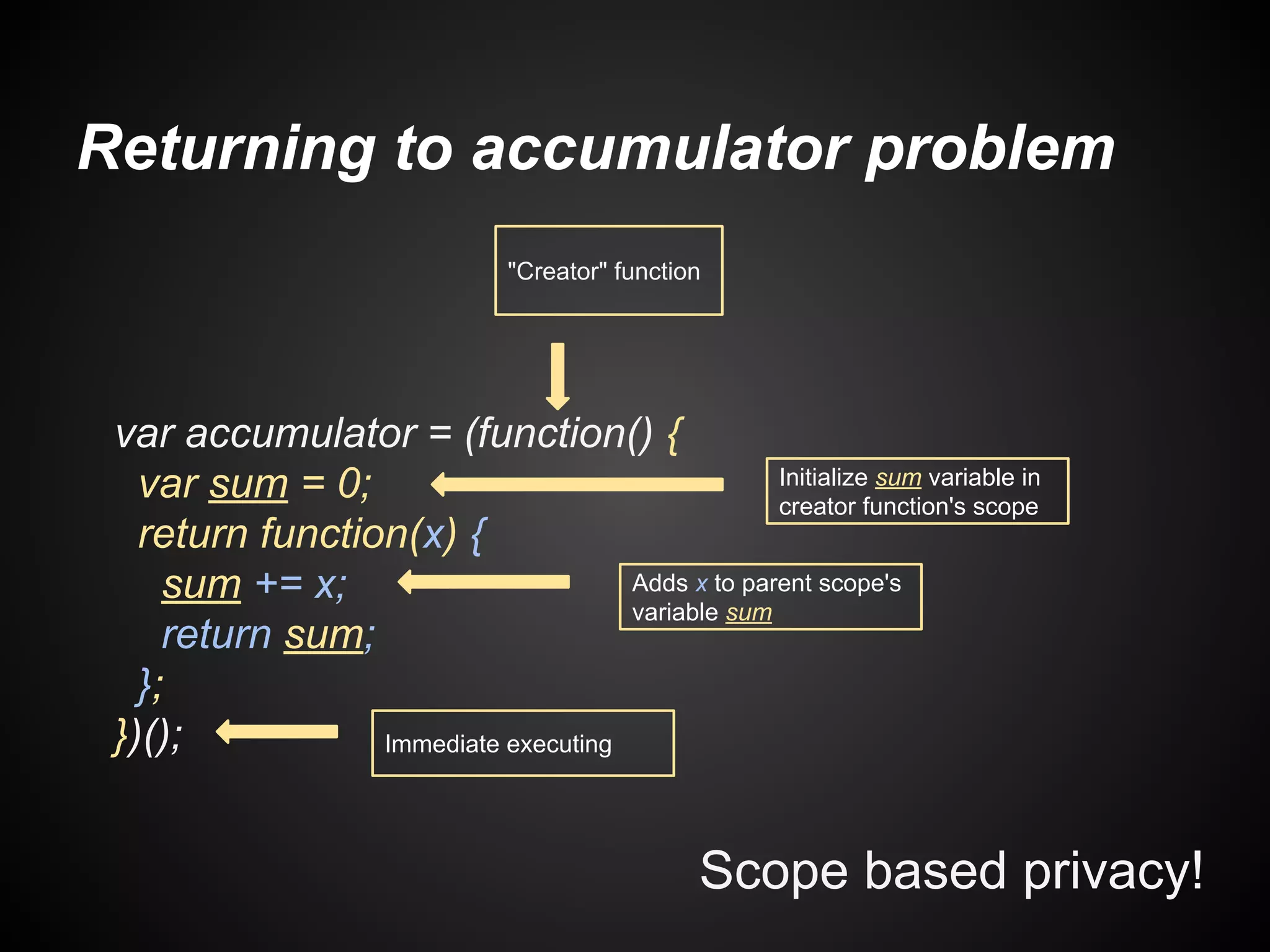

![Common scoping mistake
var callbacks = [];
for(var i = 0; i < 10; i++) {
callbacks[i] = function() {
console.log(i);
}
}
for(var index in callbacks) {
callbacks[index]();
}](https://image.slidesharecdn.com/letsjavascript1-131104072144-phpapp01/75/Let-s-JavaScript-34-2048.jpg)
![Common scoping mistake
var callbacks = [];
for(var i = 0; i < 10; i++) {
callbacks[i] = function() {
console.log(i);
}
At the end of for loop, i === 10
}
for(var index in callbacks) {
callbacks[index]();
}
For loop doesn't create
new scope, so variable i is
global
Log global variable i](https://image.slidesharecdn.com/letsjavascript1-131104072144-phpapp01/75/Let-s-JavaScript-35-2048.jpg)
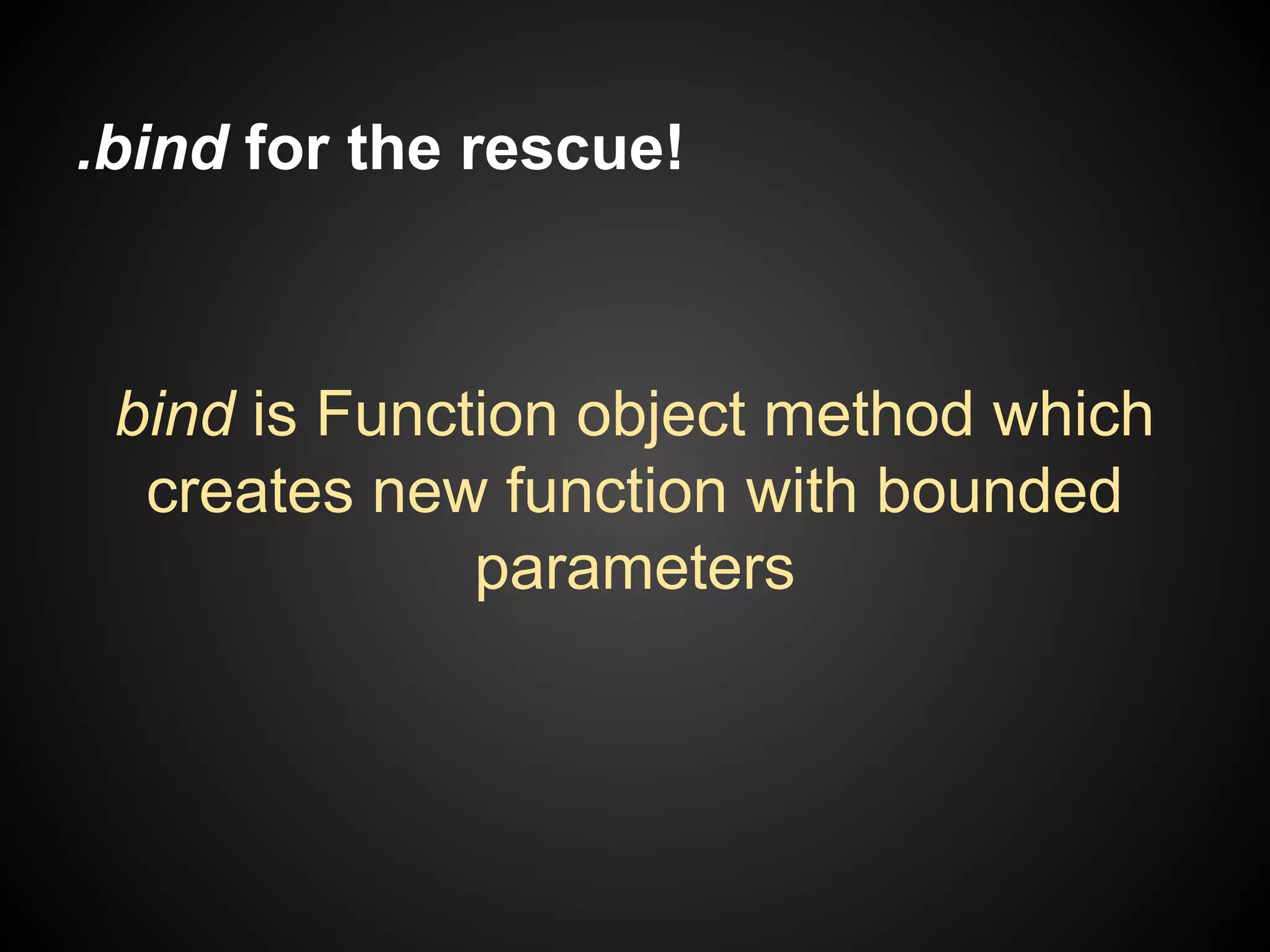
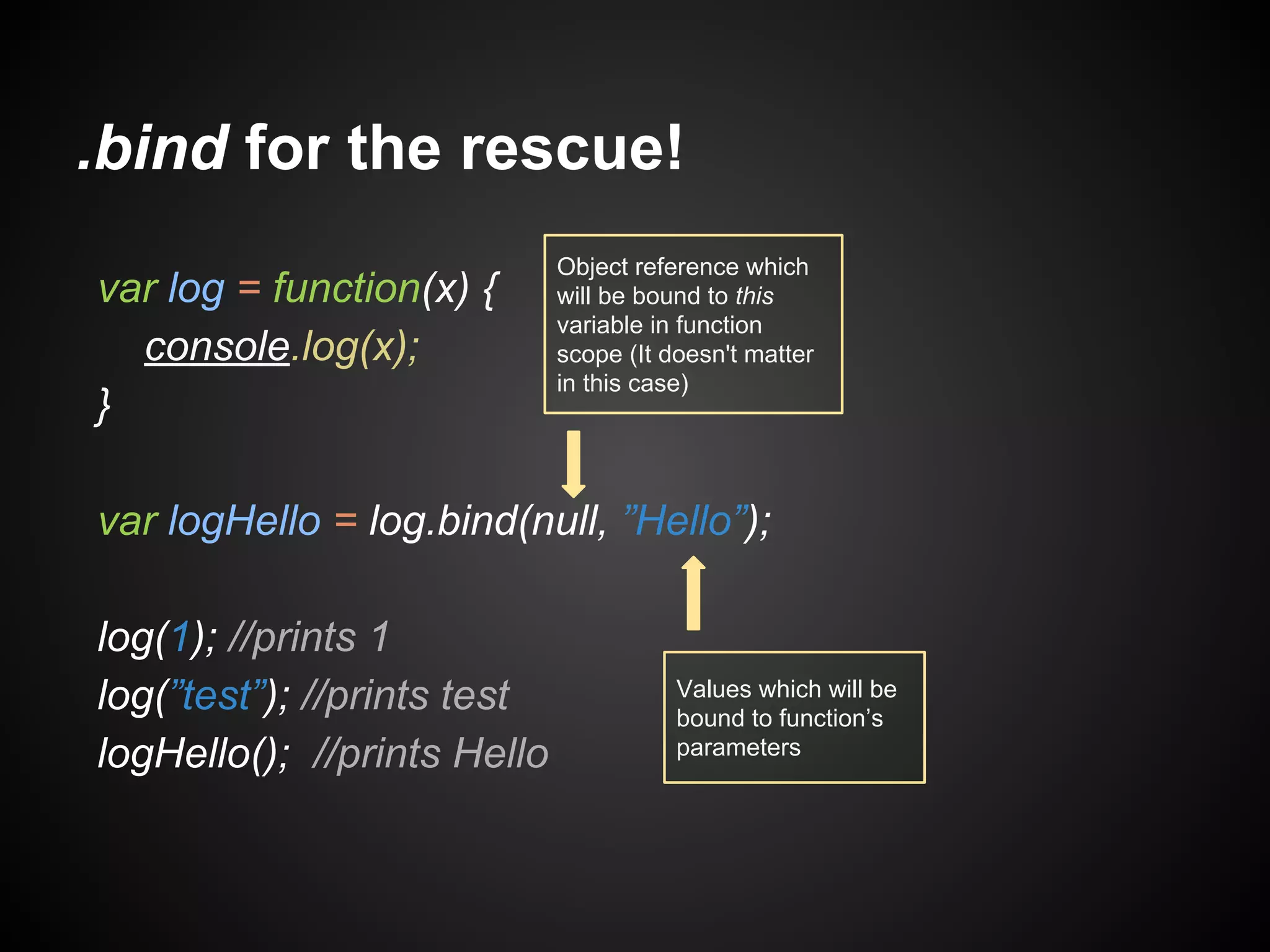
![Common scoping mistake FIXED
var callbacks = [];
var logger = function(i) {
console.log(i);
}
Create local scope
variable i
Log logger function's
scope variable i
for(var i = 0; i < 10; i++) {
callbacks[i] = logger.bind(null, i);
}
Returns new function with bounded
global variable i value as function
argument](https://image.slidesharecdn.com/letsjavascript1-131104072144-phpapp01/75/Let-s-JavaScript-38-2048.jpg)
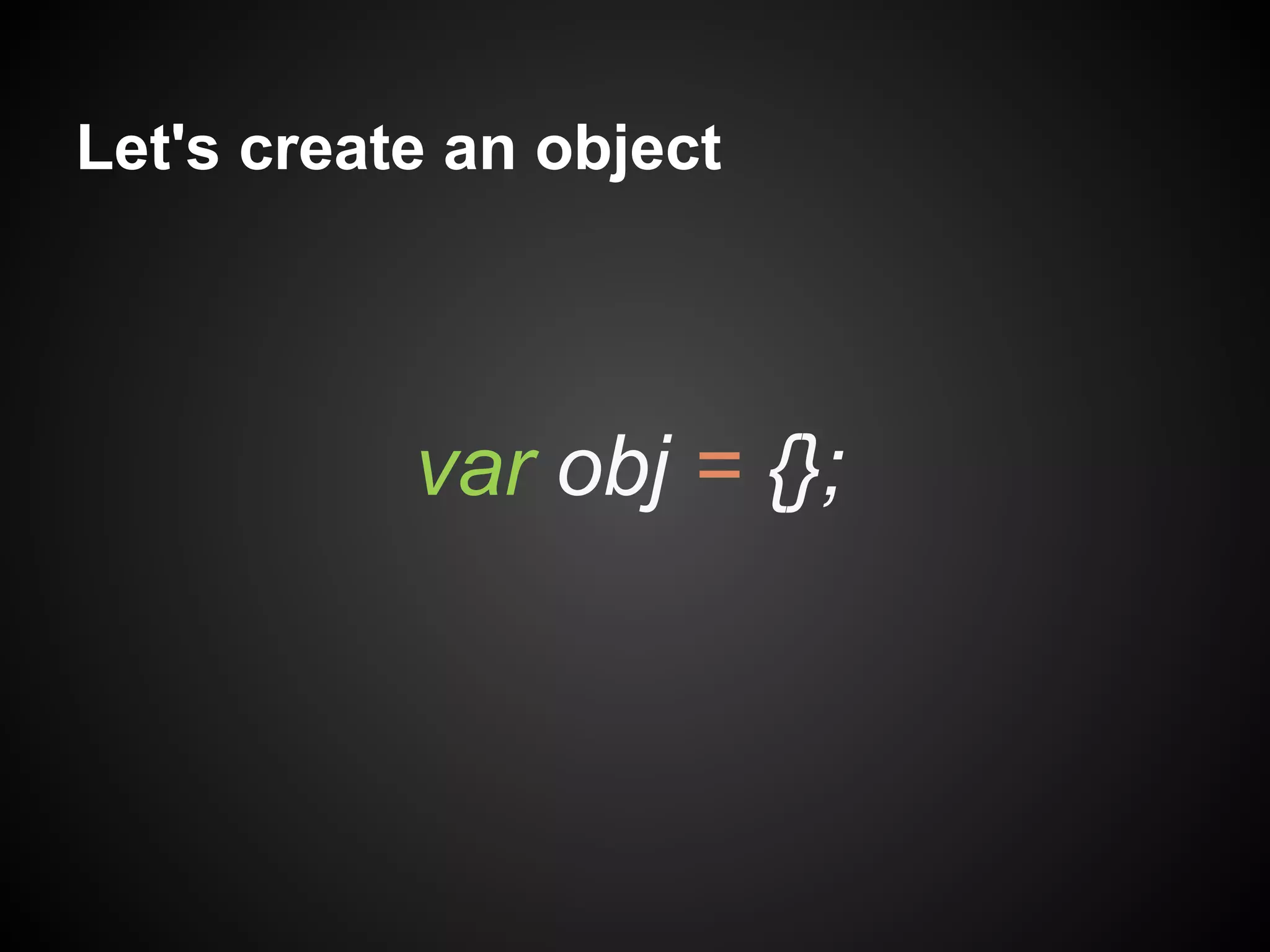

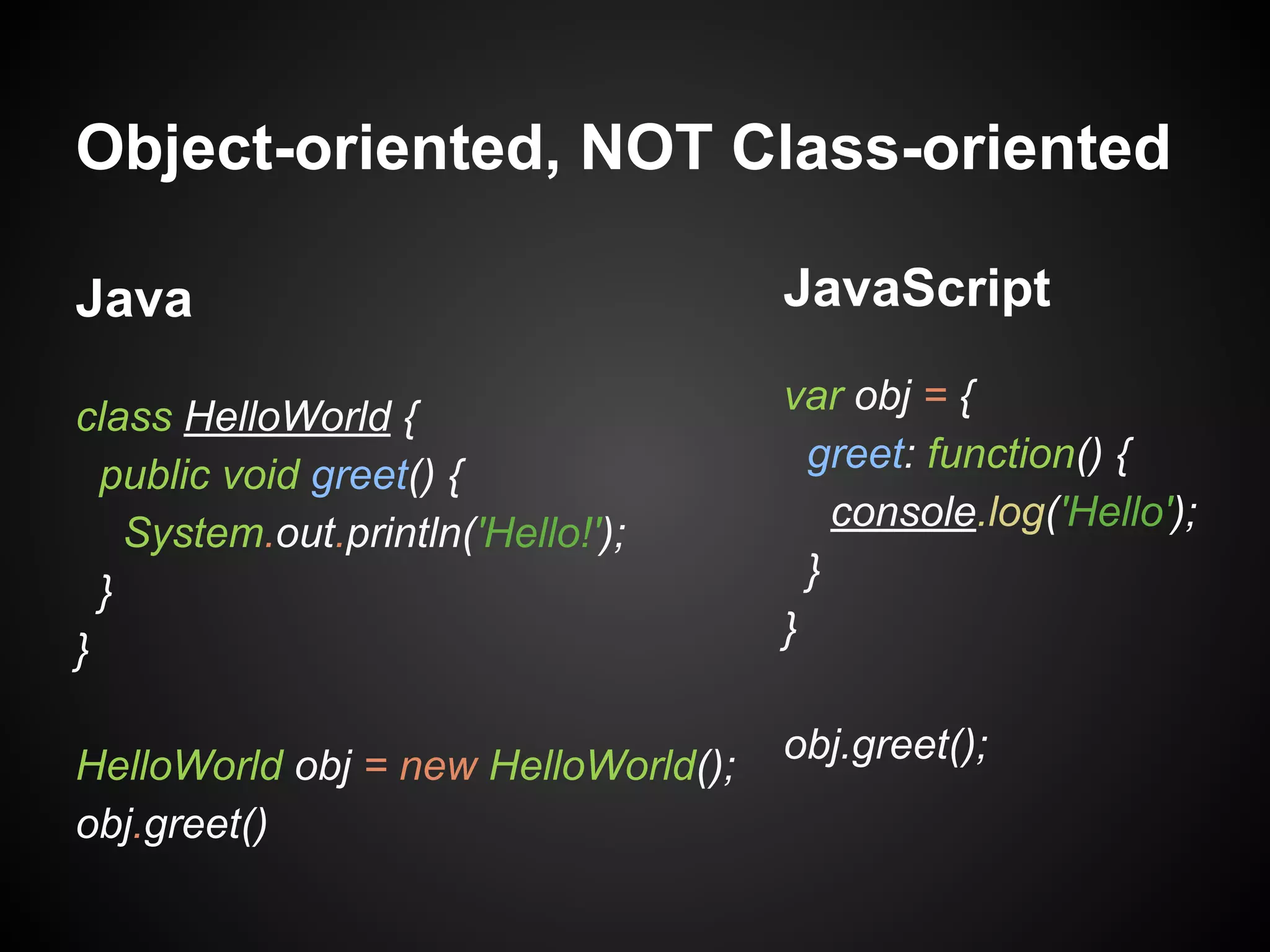
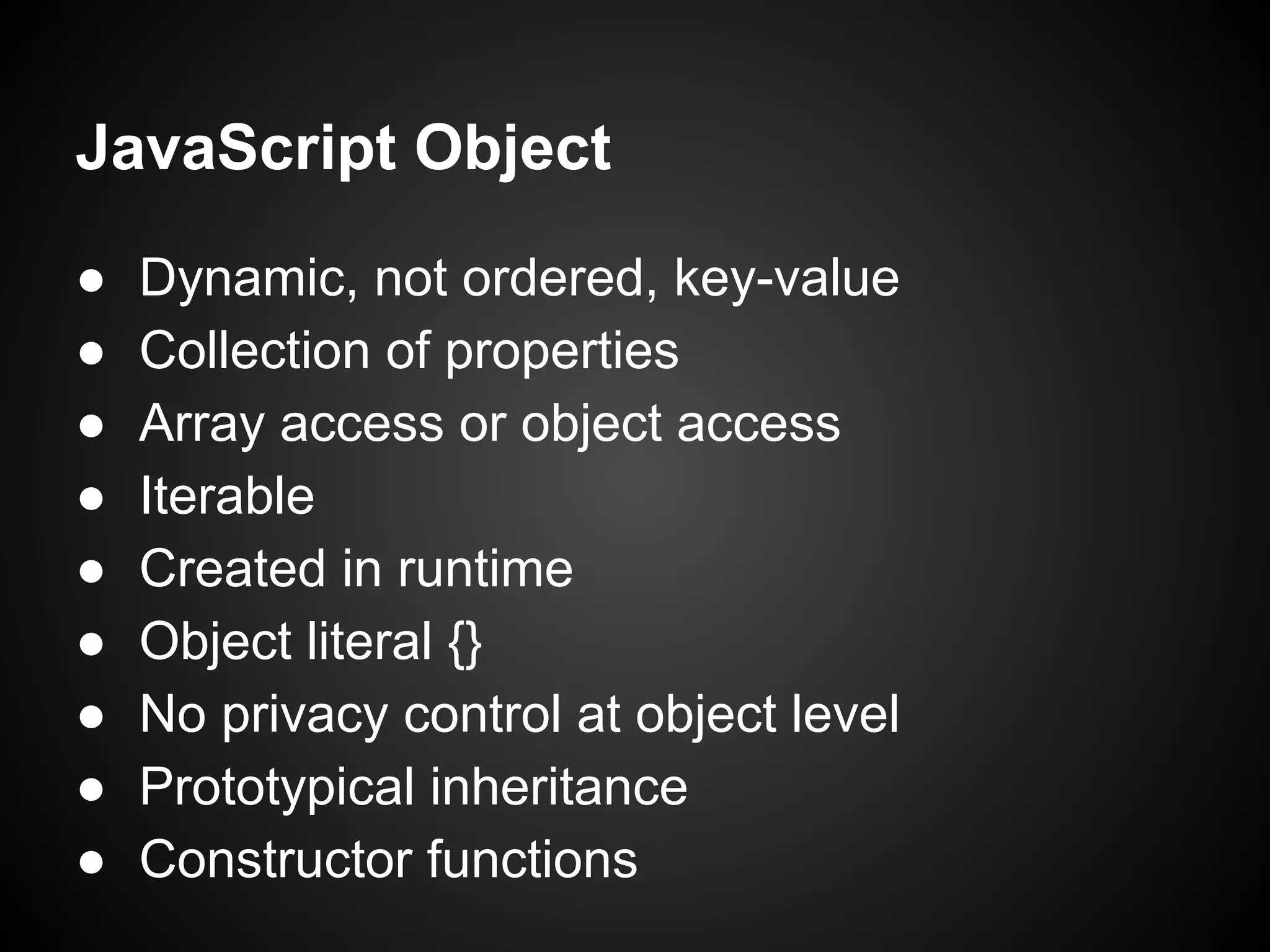

![Simple objects
var obj = {
prop1: 'test' //add property at creation time
}
obj.prop2 = function() { //add property later
console.log(this.prop1);
}
console.log(obj.prop1 == obj['prop1']); //returns true
obj['prop2'](); //returns 'test'](https://image.slidesharecdn.com/letsjavascript1-131104072144-phpapp01/75/Let-s-JavaScript-44-2048.jpg)
![Iterate objects
var obj = {
prop1: 'test1',
prop2: 'test2',
prop3: function(){}
}
for(var prop in obj) {
console.log(obj[prop]);
}
Returns:
'test1'
'test2'
[Function]
OR
'test2'
'test1'
[Function]
OR
...](https://image.slidesharecdn.com/letsjavascript1-131104072144-phpapp01/75/Let-s-JavaScript-45-2048.jpg)
![Iterate objects
var obj = {
prop1: 'test1',
prop2: 'test2',
prop3: function(){}
}
for(var prop in obj) {
console.log(obj[prop]);
}
IT DOESN'T GUARANTEE
ORDER!!!](https://image.slidesharecdn.com/letsjavascript1-131104072144-phpapp01/75/Let-s-JavaScript-46-2048.jpg)

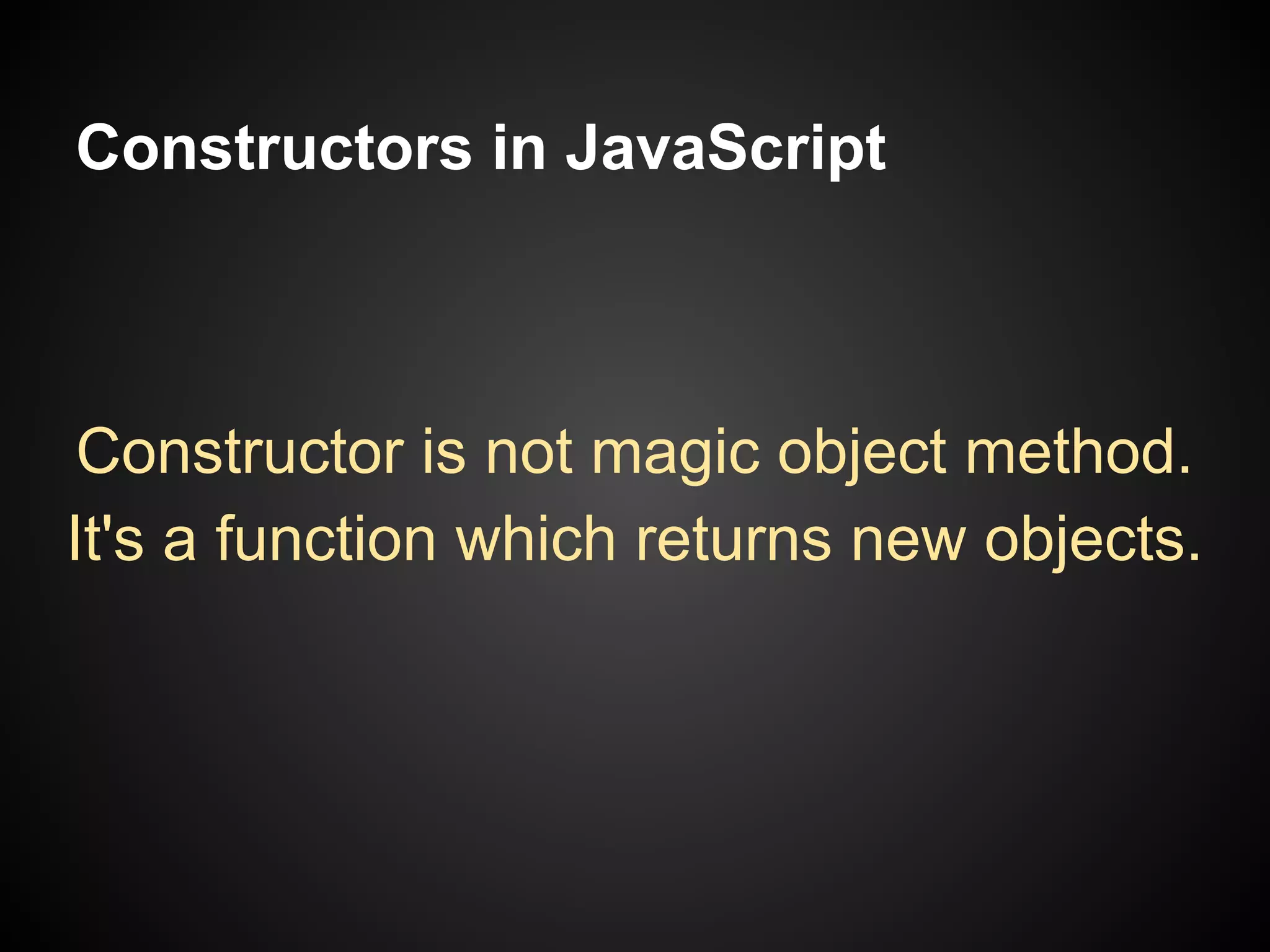
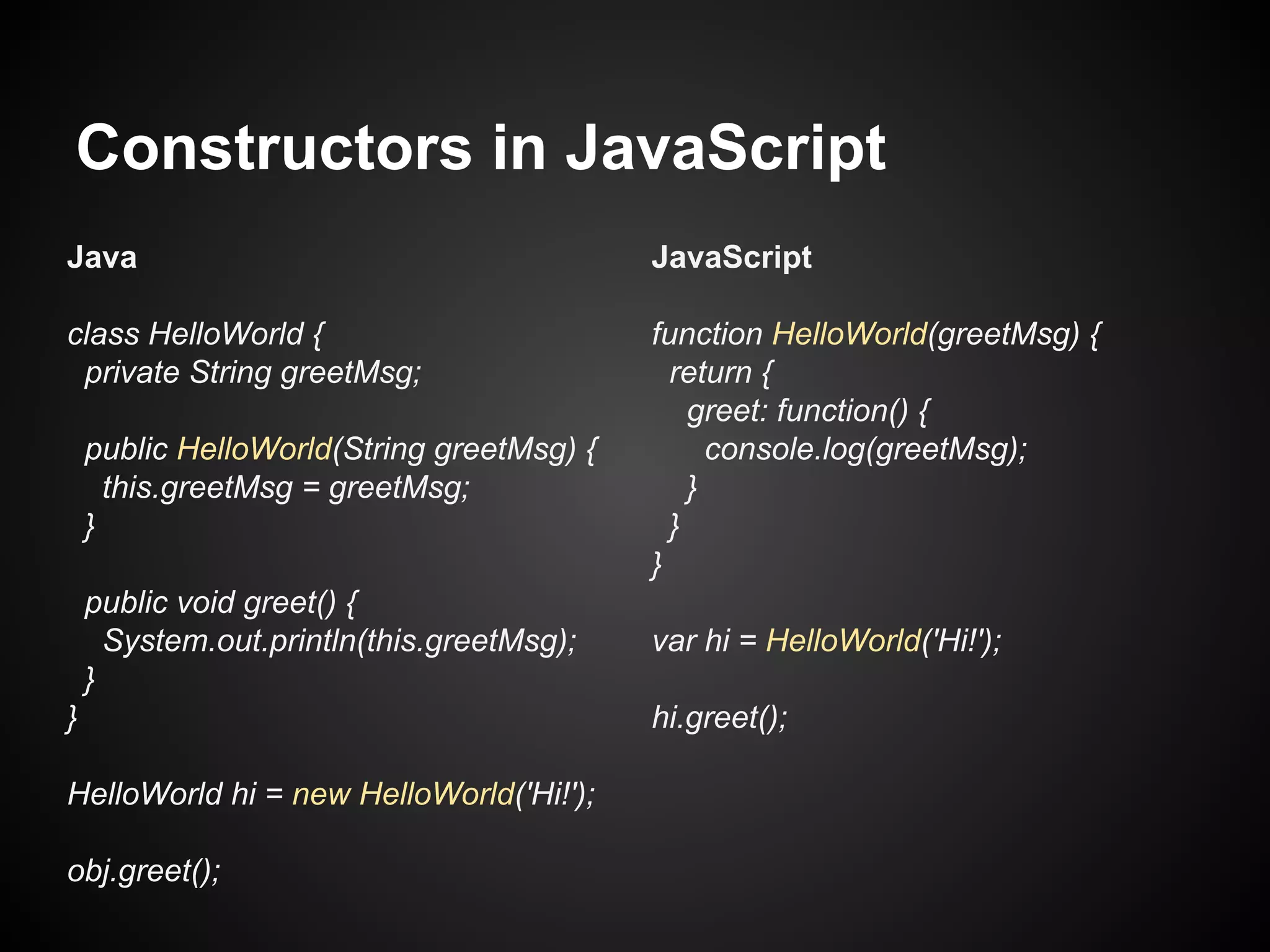

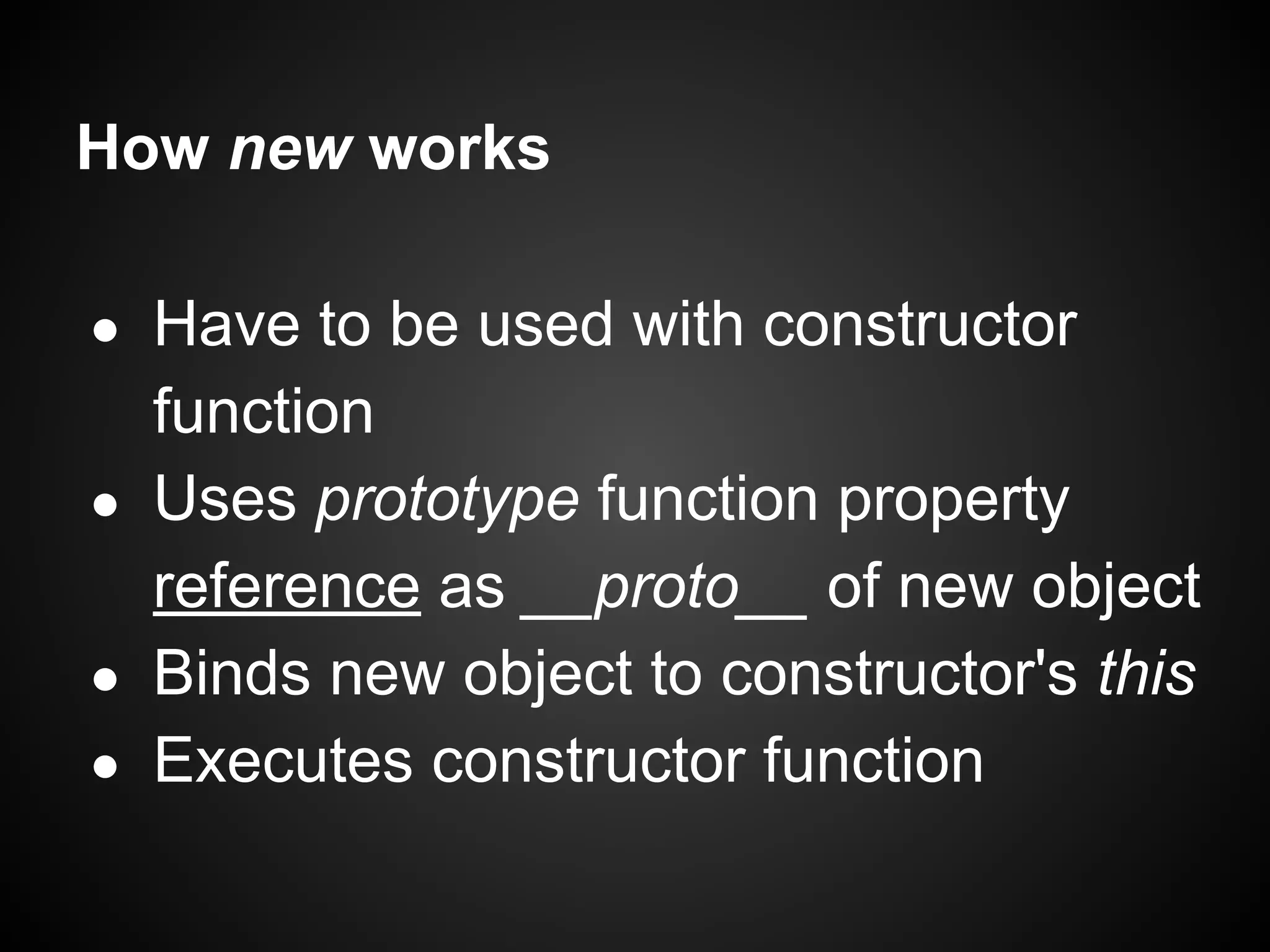
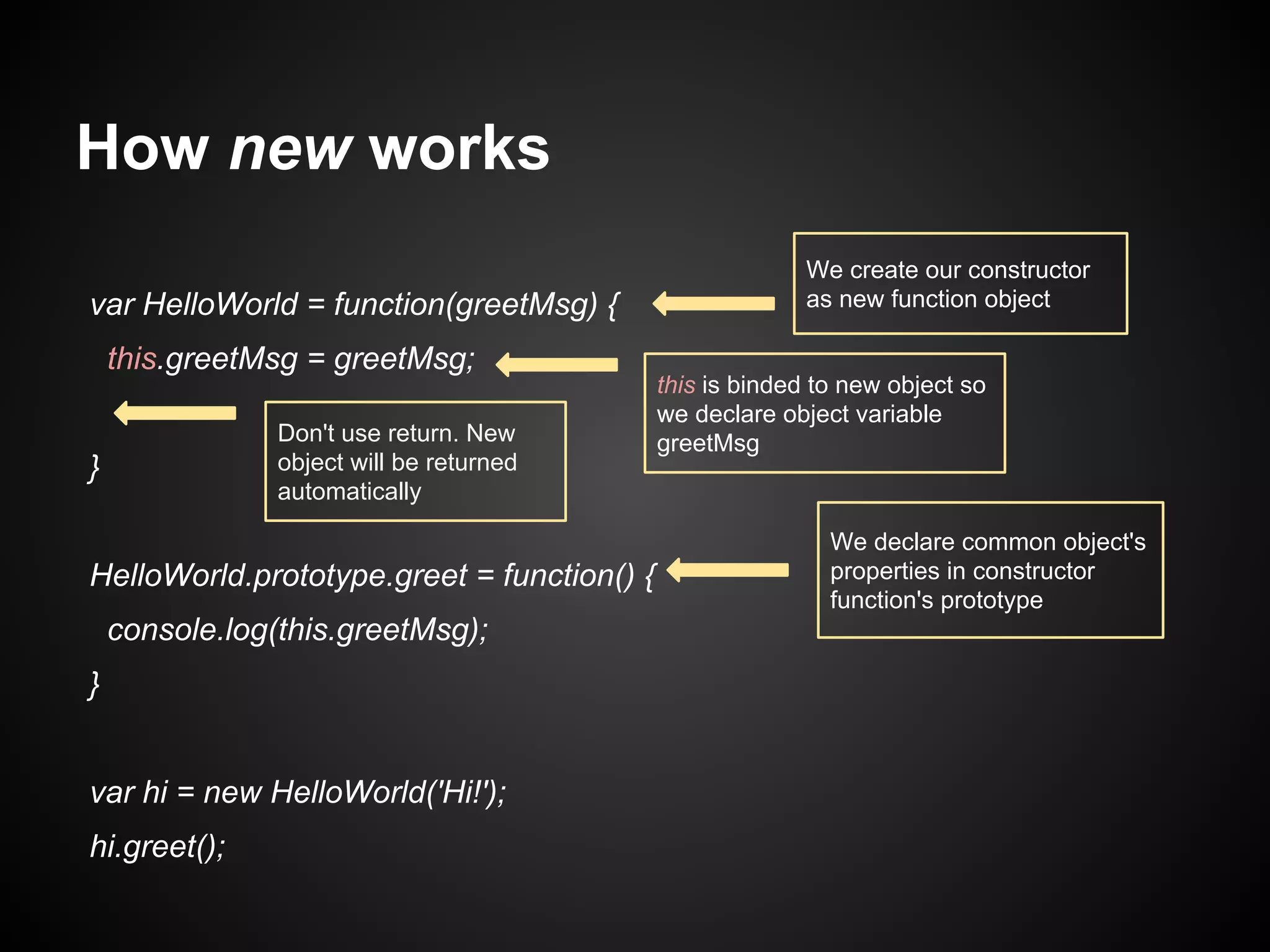
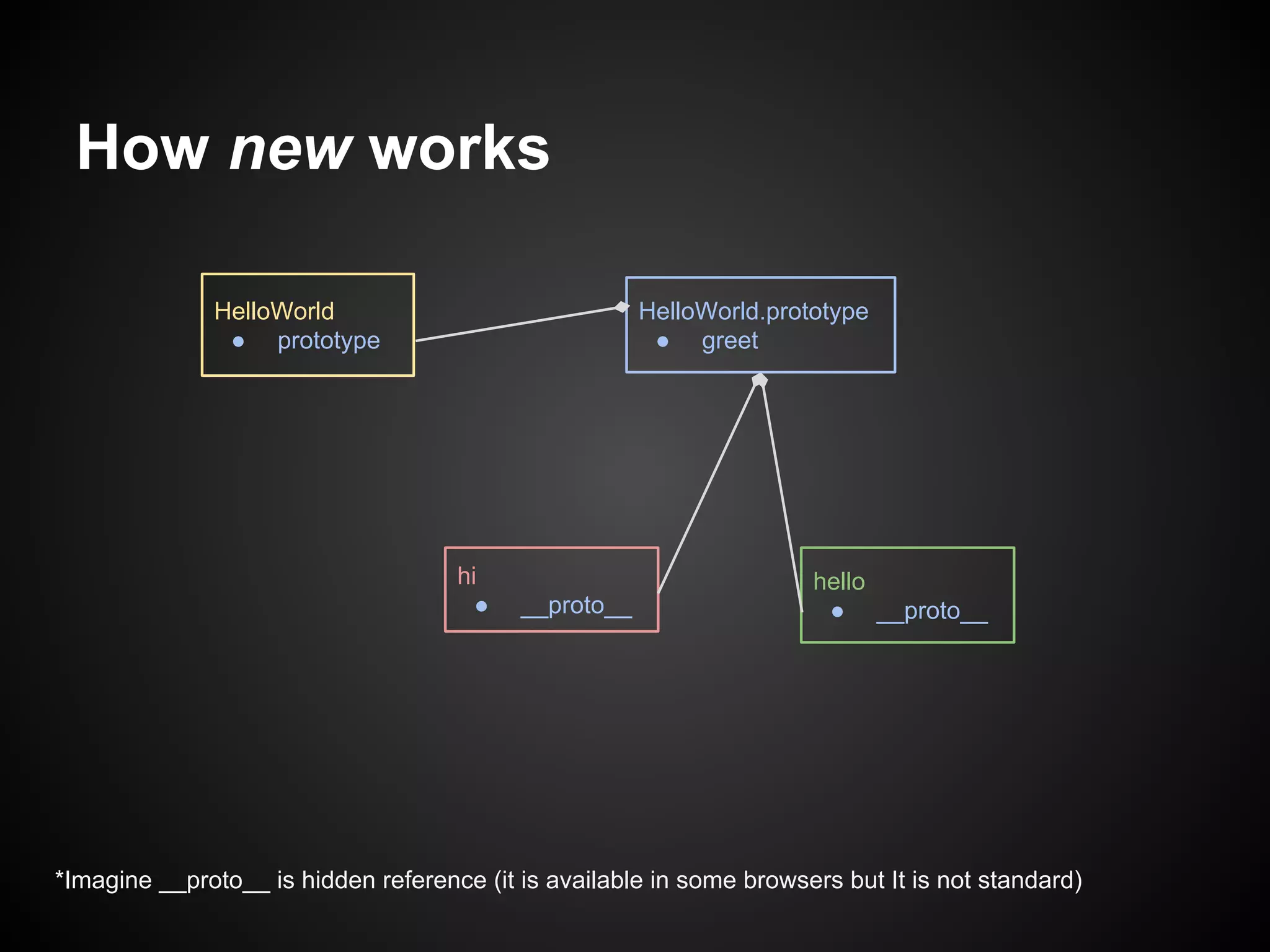
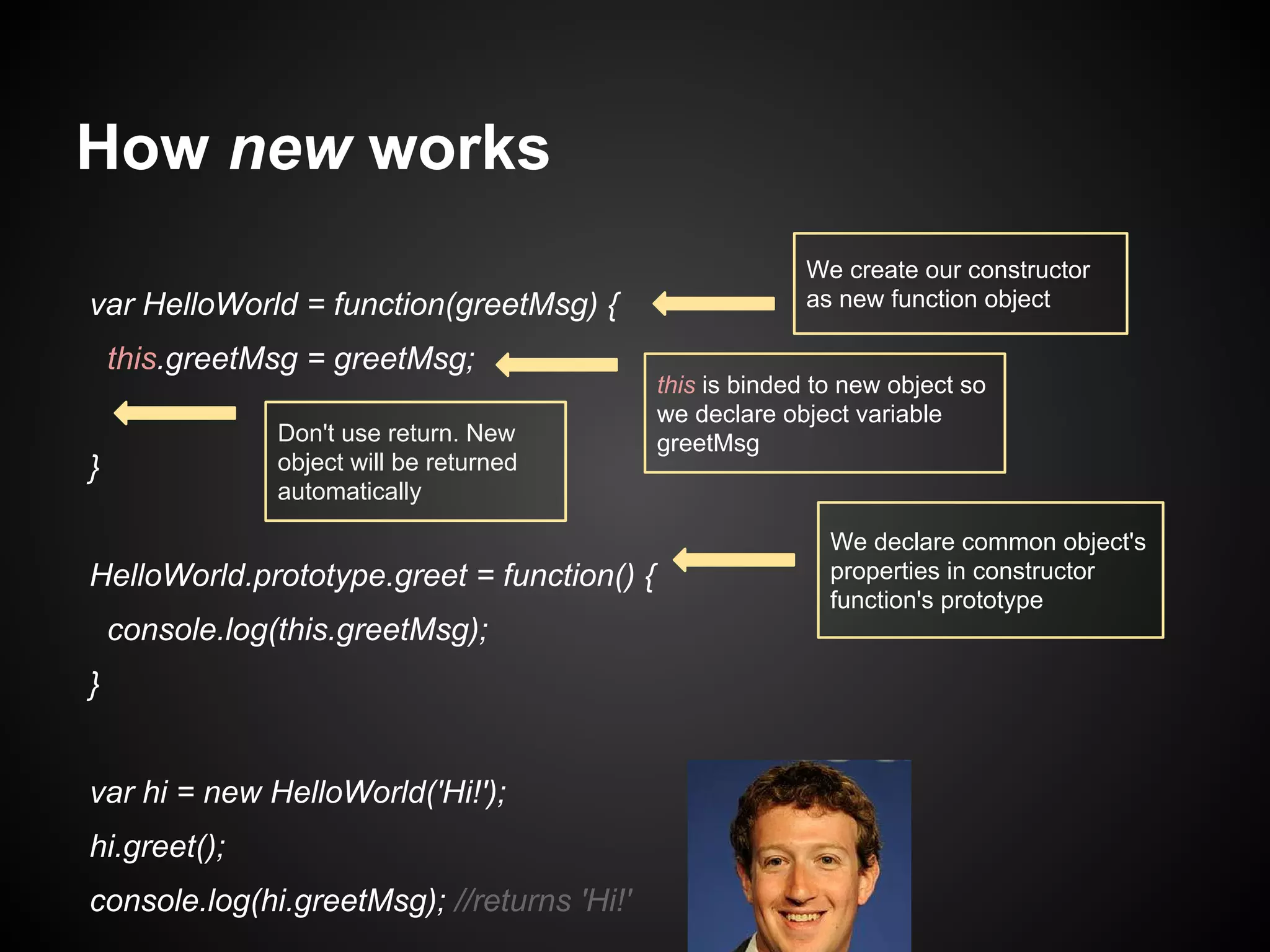
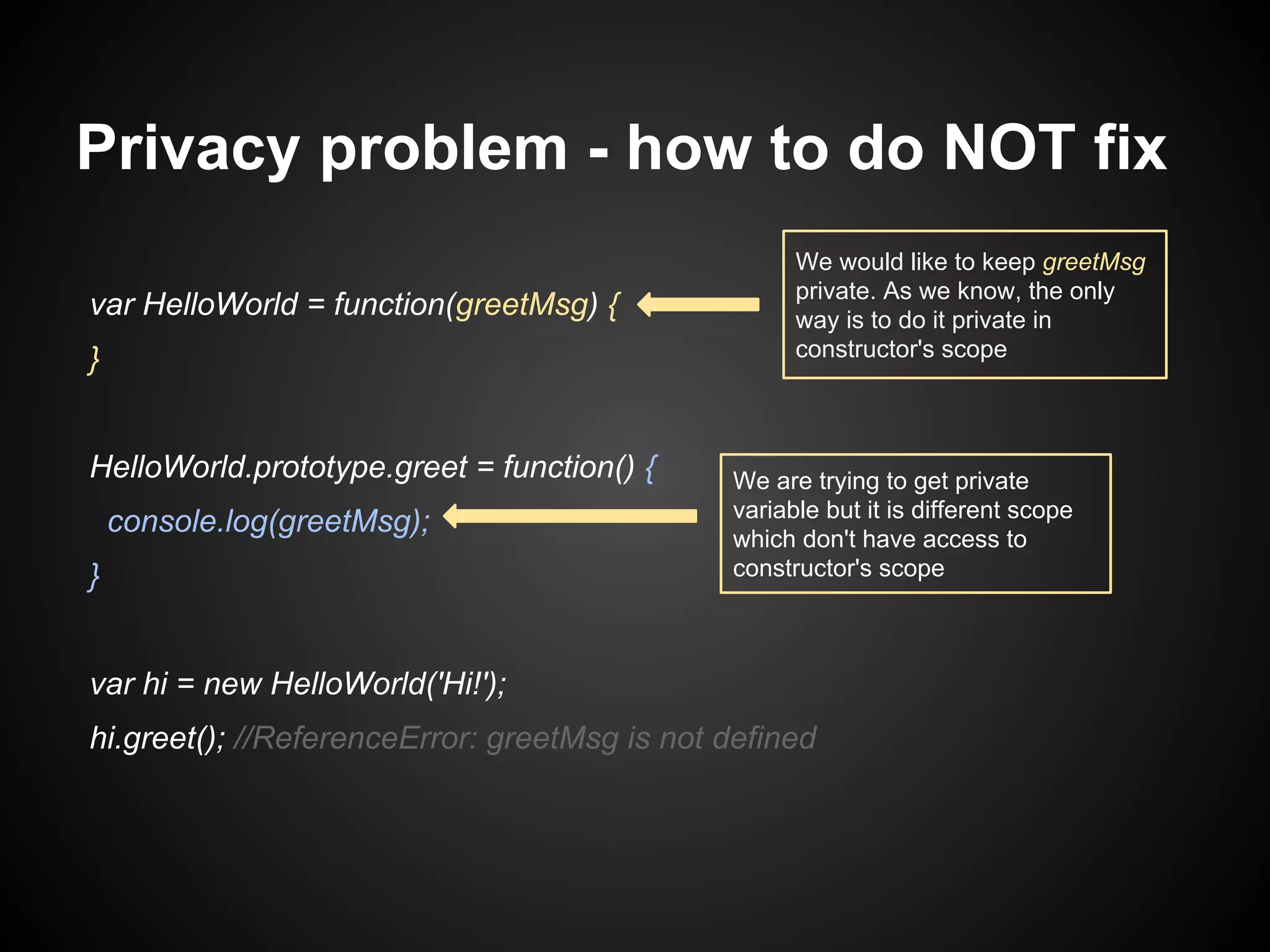
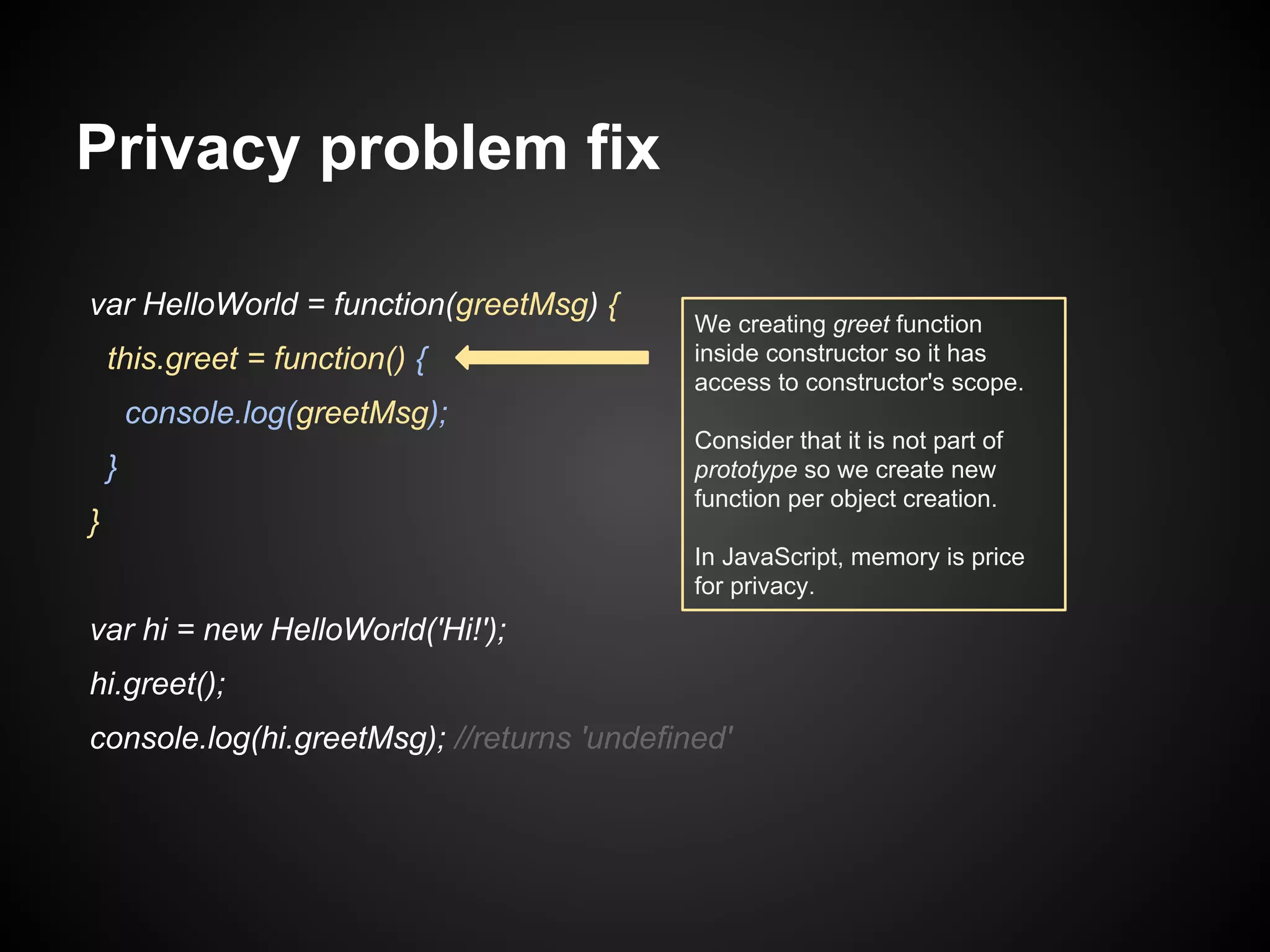
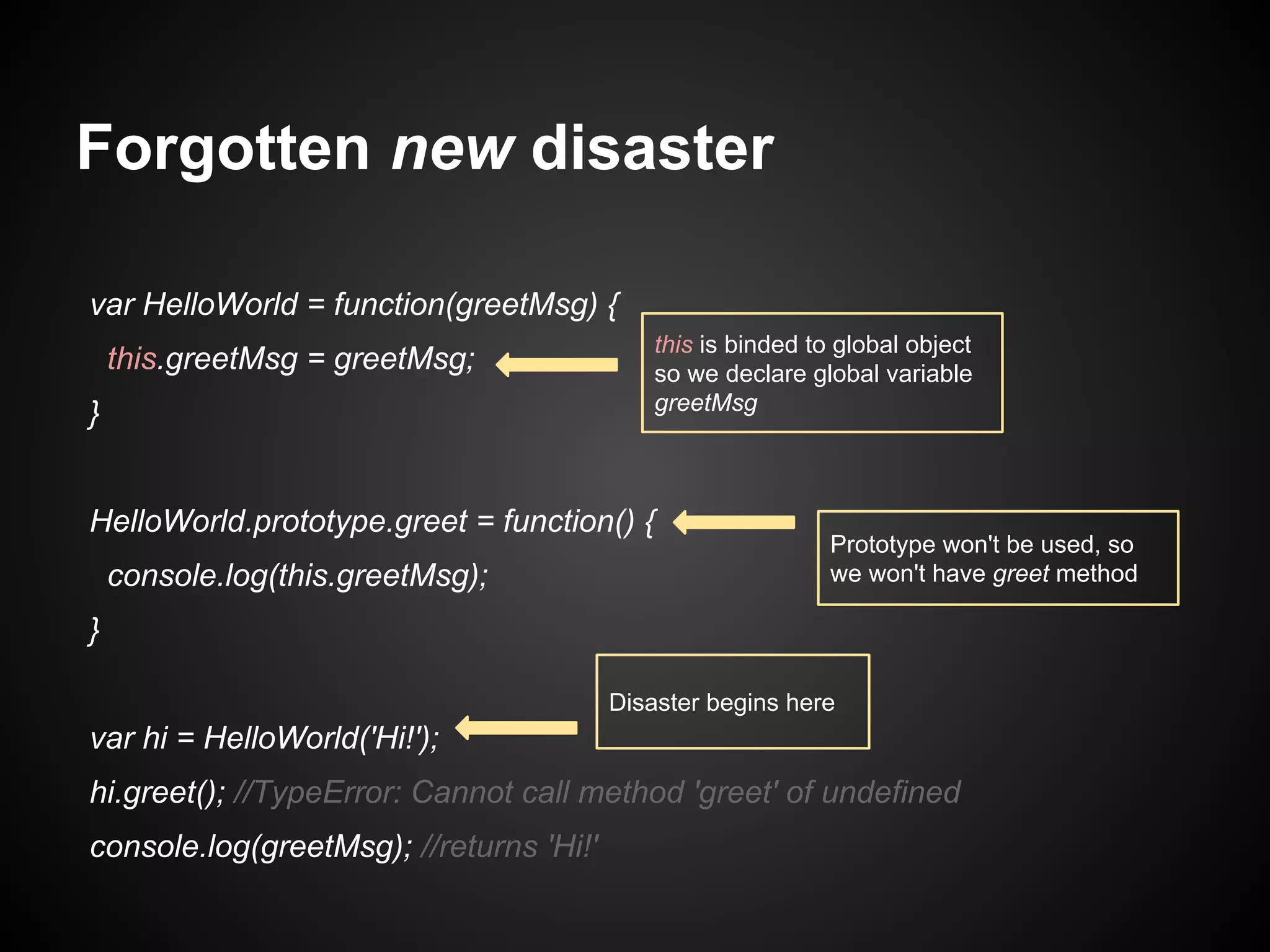

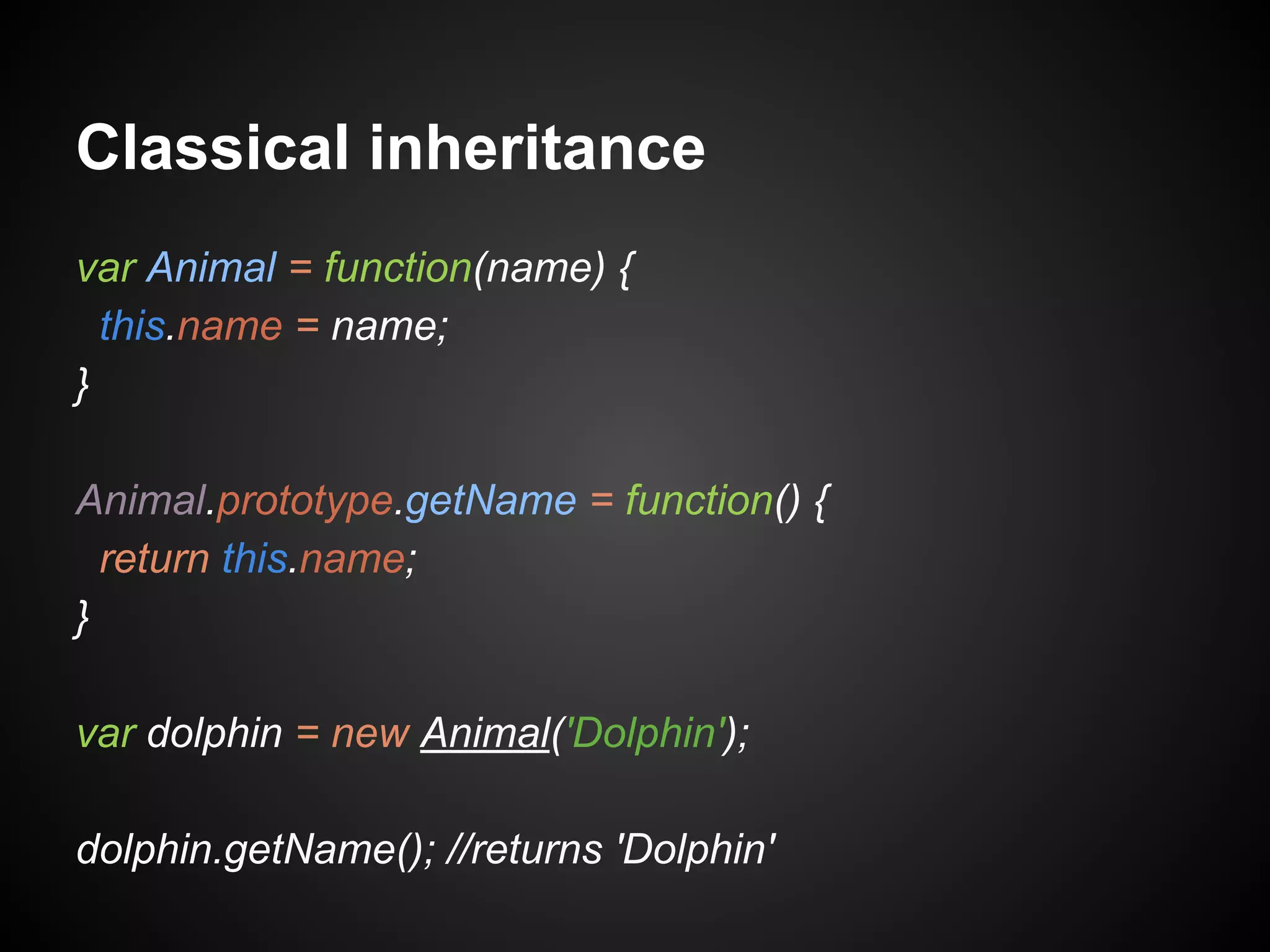
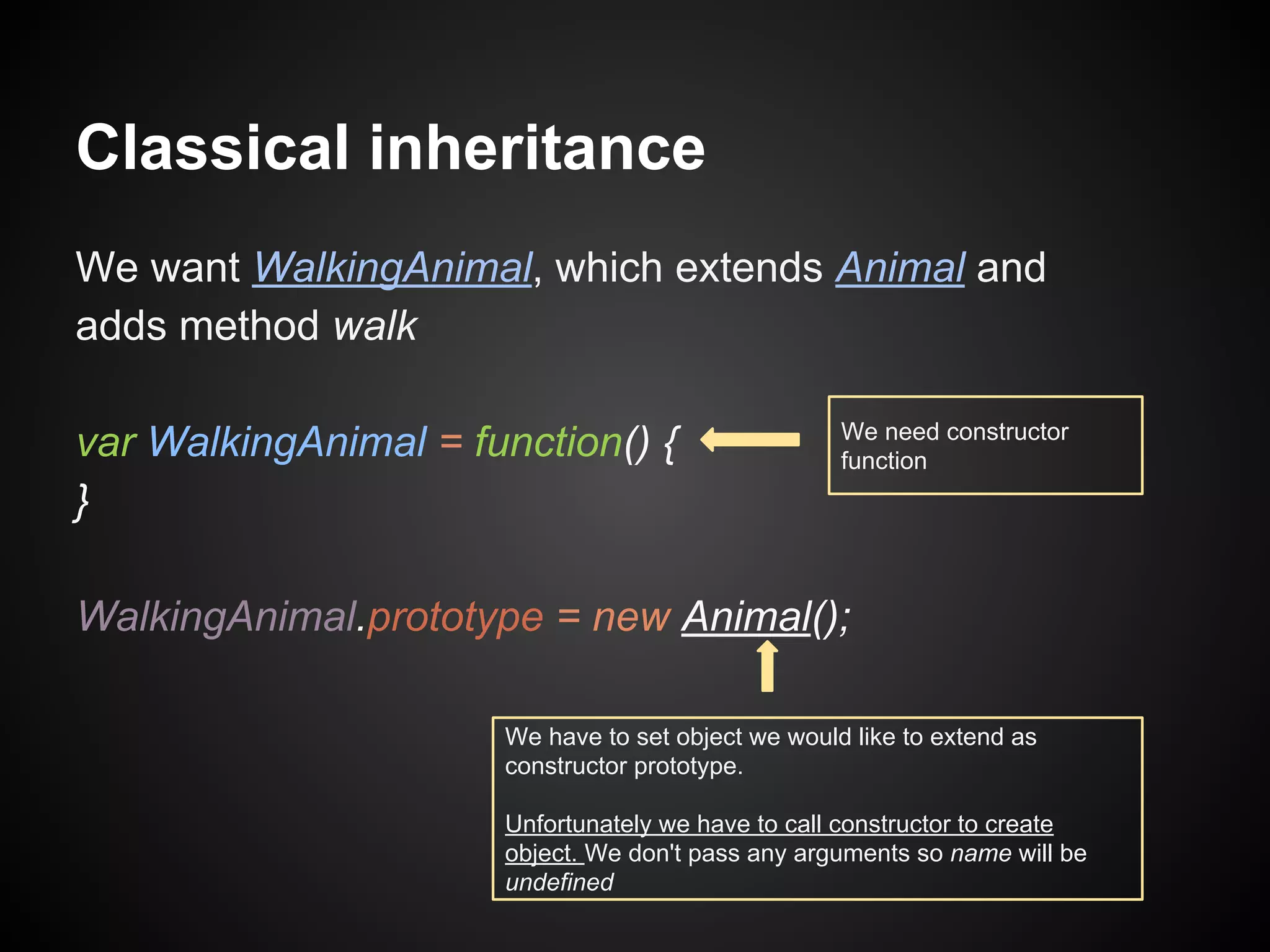
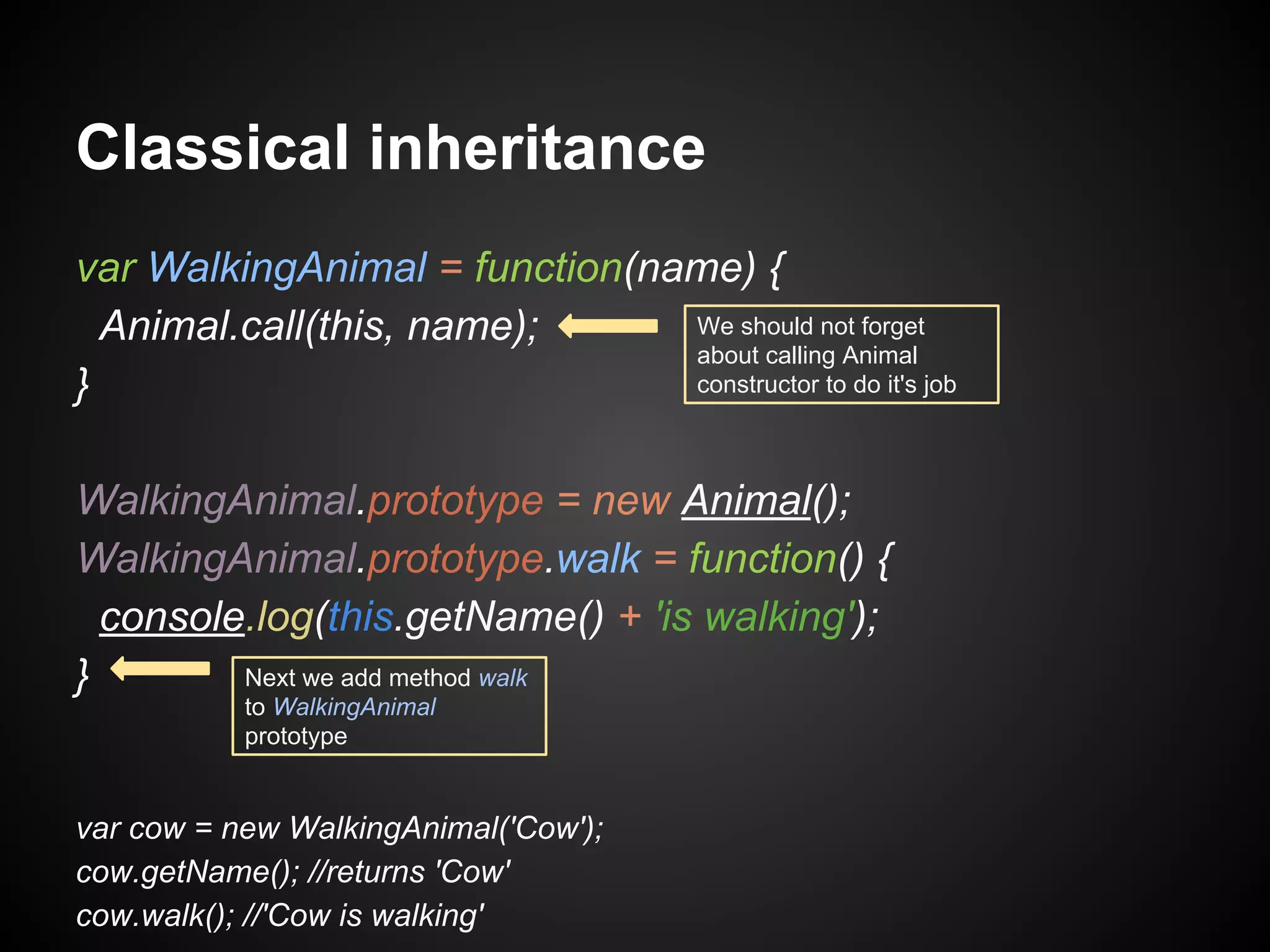

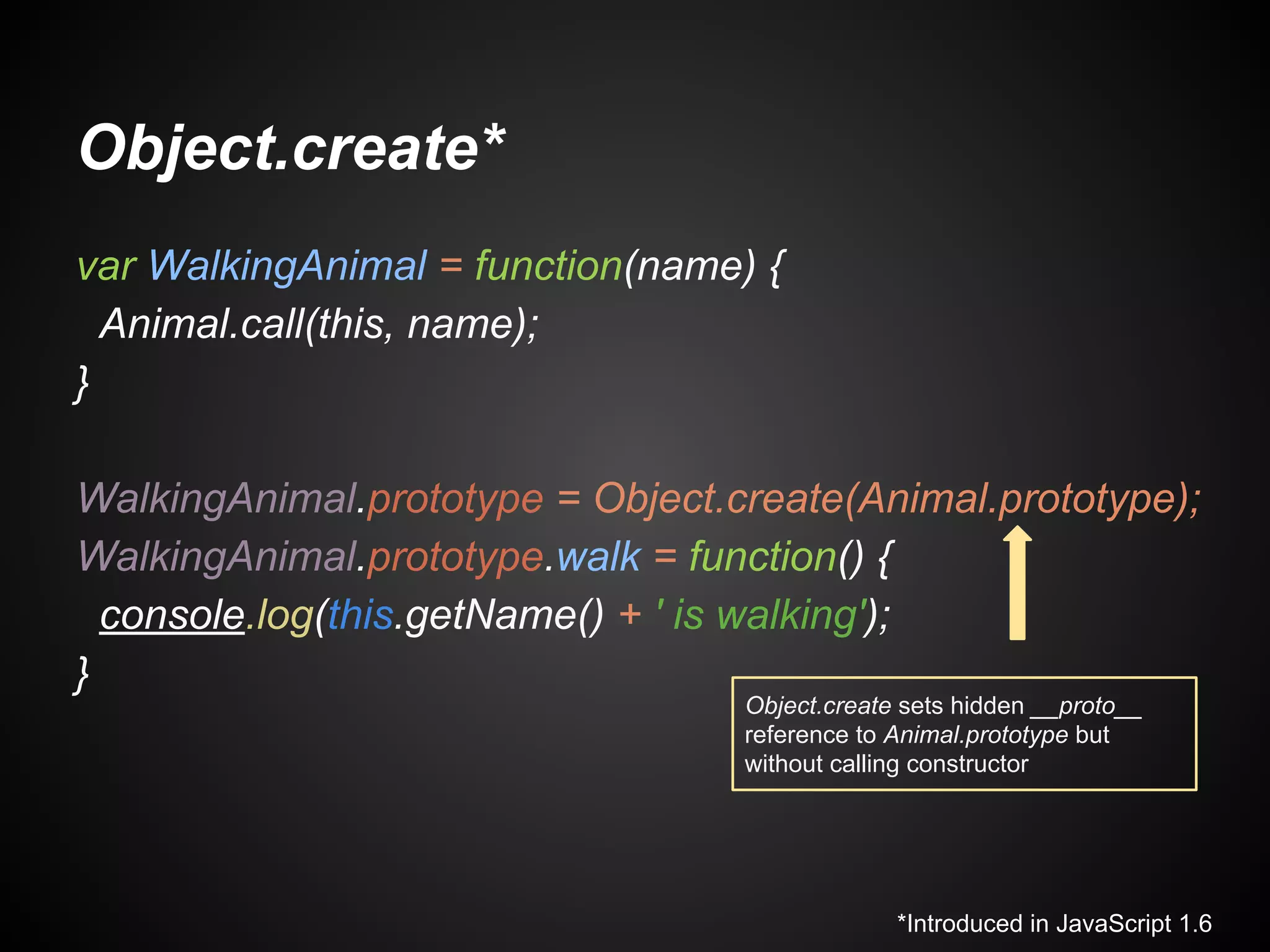
![inherits function to hide ugly stuff
Function.prototype.inherits = function(parent, methods) {
this.prototype = Object.create(parent.prototype);
We store parent in
this.prototype.$parent = parent;
$parent variable. Can
be useful later
for(name in methods) {
this.prototype[name] = methods[name];
}
}
We copy every method from methods
object to function prototype](https://image.slidesharecdn.com/letsjavascript1-131104072144-phpapp01/75/Let-s-JavaScript-64-2048.jpg)
